Interviews
Academia
Maria Pilar Lorenzo is a Doctoral Researcher at Ghent University’s Centre for Higher Education Governance Ghent. She focuses her research on regionalisation and its effects on higher education, with the aim of bringing about a more holistic and long-term element to the development and education sectors. Maria places great weight on an interdisciplinary approach to her work, crediting her time working at NGOs and technical-vocational schools as being formative in informing her academic approach. Maria was also previously a Graduate Study Program Fellow at UN Geneva and a Fellow at the Regional Academy on the United Nations.
Dr. Donna A. Patterson is Chair of the Department of History, Political Science, and Philosophy at Delaware State University. She teaches courses in African, African American, and African Diaspora history and in global health. Read about her role in the COVID-19 pandemic and how she meets her goal to bridge the gap between policy and academia.
Sarah Bauerle Danzman is an Assistant Professor of International Studies at Indiana University Bloomington. As a Foreign Affairs Officer at the U.S. Department of State, she worked on issues related to foreign investment. She is currently undertaking a term member program at the Council on Foreign Relations.
Claire David is an experimental particle physicist working for DESY (Deutsches Elektronen-Synchrotron), a German world leading laboratory for accelerators and particle physics. The DESY ATLAS group works for the ATLAS experiment, which is part of the Large Hadron Collider, the world’s largest and most powerful particle collider at the European Organization for Nuclear Research (CERN) in Geneva, Switzerland. Claire shares her passion for physics, and her experience working with scientists from around the world.
Christabel Cruz is the Director of National Education for Women's (NEW) Leadership at the Center for American Women and Politics, a national program that engages college women in political leadership. In her free time, Christabel is a visual artist and writer and coordinates community workshops for young people of color on political expression through the arts.
Elena Valbusa is a project manager at Utrecht University. She talks to WiFP about Incluusion, her grassroots project which enables education for refugee students in The Netherlands.
Fulbright research scholar Sophie Zinser talks to WiFP about her research on gaps in service provisions for female refugees and vulnerable Jordanian populations in the rural parts of the Mafraq Governorate, and her comparative study of the service provisions in Za'atari refugee camp. Sophie furthermore talks about what brought her to Jordan and what she hopes to do after her scholarship comes to an end.
Ph.D. candidate Sharmila Parmanand tell us about her research on the anti-human trafficking ecosystem in the Philippines and efforts to influence the policy-making process. She continues to serve as a international debate and public speaking consultant, which means teaching debate skills to high school and university students in over 40 countries.
A researcher and professor at the University of Buenos Aires, Dr. Lopes shares how she chose her path in Academia and her passion for Paraguay history.
King's College lecturer Christine Cheng talks about making career choices between power and freedom of expression and about the War Studies department teaching
Dr Nathalie Tocci shows how being an academic doesn't just mean doing research and giving lectures.
Harvard PhD candidate Naima Green shares her advice on applying for a postgraduate degree at the prestigious university and at the Department of State
Drawing on her 40+ years experience in conflict resolution and linguistics, Joyce Neu shares her advice for young women who would like to go in the field.
Madison Estes interviews Francesca Giovannini about starting her career at the UN, the need for self-awareness and the benefits of holding a PhD.
Asha Castleberry spoke to Lucie Goulet about her experience as a woman of colour in the US army and her distinguished academic career.
"In the Officer Corps, women have a very low representation. We're probably under 20%. When you break it down to women of colour, it's even smaller, less than 15 or 10%. The majority of peers are Caucasian men. In addition, the majority of my peers were from the Mid-West and the South."
Research Scholar Amy Nelson shares her career advice on working in arms control and academia with Ella Bowie.
Dr. Heather Williams, Lecturer in Defence Studies at King's College London, talks to Madison Estes about her decision to become an academic, sexism in the workplace and why we shouldn't always aim for work-life balance.
Séverine is an Associate Professor of Political Science, working in international relations and African studies, at Barnard College, Columbia University (USA). She specialises in civil wars, peacebuilding, peacekeeping, humanitarian aid, and African politics.
Lucie Goulet interviewed Yolande Bouka as she was preparing to relocate to Canada. They discussed how Yolande has built a rare career bridging academia and policy. The security analyst talked about what she learnt growing up a child of the world and what her own children have taught her.
LECTURER IN ENERGY AND RESOURCES LAW | FACULTY OF LAW, UNIVERSITY OF SYDNEY
You are a specialist energy and resources lawyer at Sydney Law School. What does it entail?
I conduct specialised research and teach about the legal issues that affect the energy and resources sectors globally. My particular research focus is on renewable energy law and the legal issues surrounding the development and commercialisation of energy storage. I teach our postgraduate students across a broader range of areas including oil and gas law, mining law, electricity law, project finance, renewable energy law and legal issues affecting emerging technologies. I also teach tort law (civil wrongs) to our first year students in the Law School.
ASSISTANT DIRECTOR, CAREER DEVELOPMENT | WASHINGTON UNIVERSITY IN ST. LOUIS
What do you do as Assistant Director, PreGraduate School and Career Development at Washington University in St Louis?
At the Career Center at Washington University in St. Louis, we support students and alumni as they transform their passions, education, and skills into purposeful career paths by teaching lifelong career development strategies and by connecting our diverse students, alumni, and employers. My particular focus is coaching students who are passionate about issues that relate to policy, advocacy, diplomacy, international affairs, development, and relief. I also specialise in graduate school discernment, application, and success.
EXPERT ON COMMUNICATIONS TECHNOLOGY AROUND THE WORLD
You define yourself as an expert on communications, technology around the world, and its international politics and global history. What does that mean exactly?
I am really interested in talking about putting current technology developments in a broader historical perspective. I think that very often in the news when we hear that a particular social media application was very influential in a particular protest or particular uprising it feels like it’s a brand new thing. I've had the opportunity to go back and look at historical archives and at past research on the telephone and the telegraph when they were brand new.
LECTURER IN INTERNATIONAL HISTORY | UNIVERSITY OF STRATHCLYDE, GLASGOW
What do you do as Lecturer in International History at the University of Strathclyde?
There are a number of different aspects to my work. As a lecturer, I teach various classes at undergraduate and postgraduate level. These include the Cold War, European Integration, and Modern Europe in the Twentieth Century. Teaching history to incredibly bright and enthusiastic students is great fun, as no lecture or seminar is ever the same. Students are eager to engage with historical debates and to acquire the historical knowledge that gives them a better understanding of current affairs.
SENIOR RESEARCH ASSOCIATE | UNIVERSITY OF OTTAWA
You’re a Senior Research Associate at the University of Ottawa. What does that entail?
I handle a suite of projects addressing on-going conflicts in the Middle East and South Asia. There are three main components to my job: facilitation, operations and research.
WRITER AND RESEARCHER
You run Unspoken Assumptions, a website “where history and foreign policy meet”. Why did you decide to create your own outlet rather than write for a third party?
I’m really interested in how events of the past inform many foreign policy issues or problems today. It seemed to me there is often a division between history and current affairs which doesn’t make sense. For example, you can’t fully understand the current situation in Afghanistan without having some knowledge of the history between that country and Britain. While there are a lot of outlets to write about foreign policy or history, there are few places where you can write about both. Hence, Unspoken Assumptions.
INDEPENDENT FOREIGN POLICY ANALYST
You are currently a Services Coordinator for the Refugee Services Office of the state of Utah (USA). What does that entail?
Serving as the Women’s Services Coordinator for the Refugee Services Office has allowed me to work on empowerment programming for refugee women and girls that have been resettled into Utah. In this position, I develop asset-based community programming, pair with community partners to maximise capacity-building efforts, and work on gender inclusive policy efforts.
RESEARCH FELLOW | CIES, KADIR HAS UNIVERSITY
What do you do as Research Fellow at the Center for International and European Studies (CIES) at Kadir Has University in Istanbul (Turkey)?
At the moment, since my main goal is to complete my doctoral studies in 2015, I am not a member of the core team. Instead, I try to support the CIES through my network and doctoral research. Previously, my position was more demanding of my time. I was responsible for conducting research, writing grants to international donor agencies and organising events on foreign policy issues.
INTERNATIONAL DEVELOPMENT CONSULTANT AND DOCTORAL RESEARCHER
You are in the final year of a PhD focusing on the experience of young people who have fled conflict. What does it entail?
My PhD focuses on the lives of 40 young people who have fled conflict or persecution and are now seeking asylum or living as refugees in the UK. I interviewed young people from countries such as Syria, Iraq, Afghanistan and Somalia about their experiences of fleeing their home country, travelling to the UK and seeking asylum here.
Advocacy & NGOs
In this interview, we discuss recent changes to Poland’s abortion law and the role played by the Association in Defense of Democracy in Poland and the International Council of Polish Women in keeping the international Polish community informed, mobilised and active with respect to these developments.
What is it like to enter war zones and speak with designated terrorists? How difficult is it to hear multiple perspectives before offering an analysis? Dareen Khalifa is a Senior Analyst at the International Crisis Group working on Syria and in her quest to support peace, speaking to designated terrorists is a task on her 'to-do list'. Dareen has 15 years of experience working on the Middle East, with a particular focus on sub-state armed groups, local governance, and civil society. She has worked on the Syria conflict in a number of roles since 2013, regularly traveling to Iraq and Syria to engage with various civilian and armed actors on initiatives to mitigate conflict. Dareen appears regularly on television, radio and in print as a commentator on Middle East affairs. Dareen has an MA in Human Rights and Public Policy from University College London.
Gabriella Irsten has been active in the field of security politics for many years. Since 2016, she has been a Policy and Advocacy officer at the Swedish section of the Women’s International League for Peace and Freedom. She has a Bachelor’s degree in Political Science and Government from Stockholm University and holds a Master’s degree in Humanitarian Assistance and Conflict Resolution from the Ruhr-Universität Bochum.
Dr. Alice McGushin is a medical doctor specialising in Public Health. Since the inception of medical school, she was passionate about climate change. She works as Programme Manager at the Lancet Countdown, an organisation bringing together academics to create multidisciplinary indicators tracking the effects of climate change.
Sanam Naraghi Anderlini has over two decades of experience as a peace strategist working globally in the field of women, peace and security. In 2001, she was a civil society leader and drafter of the UN Security Council Resolution 1325. She is the Founder & CEO of ICAN and holds a master’s degree in Social Anthropology from Cambridge University. In December 2019, she was awarded the Member of the Most Excellent Order of the British Empire (MBE).
Angellica Aribam has been listed in the 2017 Forbes India 30 Under 30 for her extensive work on issues of race, gender, student welfare and democratisation of Indian politics. She has been National General Secretary of the National Students’ Union of India and VVEngage Fellow for women political leaders at Vital Voices.
Sarai Bareman’s early passion for football and experience in finance ultimately lead to a career working for football organisations at the national, regional and international level, culminating in her appointed as Chief Women’s Football Officer for FIFA in 2016.
Bunmi Akinnusotu is a first-generation American who spent countless hours listening to her Nigerian relatives argue about world politics. The idea of a world outside of America has always been part of her consciousness and is the motivation behind her podcast. “What in the World (WITW)?” makes global issues understandable and relevant to ordinary American people. Explained by expert women and people of color, they break down current and past foreign policy issues by connecting it to everyday life.
Zarina Khan shares her journey as an advocacy professional and the path that led her to working at ActionAid UK.
Head of Policy and Advocacy at Women for Women International, Carron Mann, shares her experiences working in advocacy, the non-linear path that led her there, and her advice for young women hoping to work in the field.
As a regional security and governance coordinator at the Danish Refugee Council (DRC), Natasha Leite focuses on dialogue between host communities and displacement affected people or supporting their participation in peace building and decision-making processes.
Fidelis Muia, Director of Programs at RefuSHE, shares her advice for women with an accounting background who want to work in development and foreign policy.
Arifa Nasim, the founder of Educate2Eradicate, speaks to Ashvini Rae about what inspired her to set up her own organisation at the age of 18 and what she’s learned from it.
Assistant Director of International Jewish Affairs at the American Jewish Committee (AJC) talks about experience combatting Anti-Semitism in Europe and going above and beyond to work in diplomacy
Foreign policy entrepreneur Madeline McSherry talks about how she has navigated the rewards and challenges of self-employment as a freelance writer, researcher, and communications consultant
Founder Sara Minkara shares her experience of setting up her own non-profit while studying at Wellesley College , of attending the Kennedy School and being a bling visible Muslim woman in foreign policy
Rebecca Cobby talks about working for the US-UK Fulbright Commission and about the specific challenges of coming back to work after having children
Larissa Kennedy talks to Ashvini Rae about youth activism in foreign policy and launching her own international organisation, Talawa International.
As part of our Women in Foreign Policy with disabilities series, Gabrielle Belli talks about how we can stop stigmatising people with ADD/ADHD
Mobility International USA's Susan Sygall has dedicated her life to empowering people with disabilities to take part in international exchange programmes.
Sarah Linder tells the stories of Israeli and Palestinian women affected by the local conflict through her initiative Political is Personal.
We deep-dive into the geopolitical challenges of internet governance and a career in the field with Alex Dans, Senior Comms Manager for ICANN.
Meet Lori Adelman, global comms director for Planned Parenthood working at the forefront of sexual and reproductive health. Here she talks about the role of technology in global health and shares advice on balancing a day job and a side hustle. Interview by Lucie Goulet and Kelsey Suemnicht.
Laura Stebbing is the Fundraising and Partnerships Director at the Cherie Blair Foundation for Women. She is based in London
In December 2016, we spoke to writer and speaker Wardah Khalid about supporting Muslim voices in foreign policy in the US. She told Lucie Goulet that "It wouldn’t be a good thing if every single Muslim in the government left, because there would be nobody to be the voice of reason or counter policy that isn't good for national security and discriminates against people or violates their civil rights."
As part of a brand new partnership highlighting American Muslim women's role in foreign policy, Women in Foreign Policy's Lucie Goulet and Middle East Collective's Whitney Buchanan interview Ani Zonneveld of Muslims for Progressive Values. Ani shares her advice for people who want to partner with progressive Muslim organisations and explains why it's important to use religious language to counter extremism.
After stints at USAID, UNICEF and the Peace Corps, Latanya Mapp Frett joined Planned Parenthood Global to run their international programs. Here, she talks to Lucie Goulet about her role, the challenges she expects from the new administration and how we can all support reproductive health worldwide.
Lucie Goulet and Kelsey Suemnicht interview Nora Hauptmann about her career, from studying psychology to making sure refugees gain equal access to education with Kiron. Read her interview for great tips on how to navigate red tape in tech and inspiration on how digital can change foreign policy for the better.
I am involved in an initiative called Business for the Unseen (BFTU). We bring together companies in work groups to use oir collective voice to influence and improve the lives of unseen people such as workers in modern slavery, bonded labour and forced labour, in places like China, Korea, Japan, Jordan, Mauritius.
For the first podcast about women working at the intersection of tech and foreign policy, The Women in Diplomacy Podcast's Kelsey Suemnicht and Women in Foreign Policy's Lucie Goulet interview TechWomen program director Arezoo Riahi. Arezoo talks about the program's achievements, how tech is changing international relations by bringing people closer and how to build a successful mentoring relationship.
Development
Dr Ebere Okereke is a medical doctor from the University of Nigeria who works for Public Health England. She works with Public Health Specialists in six developing countries to strengthen their existing infrastructure to comply with international health regulations. In addition to her regular job, she is supporting the COVID-19 response.
Quratulain Fatima is one of the first women to have joined the Pakistan Air Force. Today, she is a Project Lead at the Agency for Barani Areas Development and a Gender and Conflict Prevention advocator.
Find out about the skills and knowledge required to work at USAID with Katherine Walsh, program officer for Pakistan. Interview by Lauren Chaplin.
Thao Tran speaks to Aisha Babalakin about her work providing business and financial advice to teams at USAID, and her experience as a Vietnamese-American working in international development.
Morgan McLain-McKinney encourages more women to consider a career at USAID. Here, she talks to Lucie Goulet about why communicating is the most important part of her job and setting up the very important Wikipedia page about African Americans in foreign policy.
Mariam Khan's key career learning: "reach out to people at the organizations you want to work for". This helped her get her first graduate job in communications at the UN Foundation. Now working at the Population Council, Khan talks to Lucie Goulet about how being a third culture kid influenced her decision to work in international development.
Since becoming a Foreign Service Officer, USAID's Alicia Contreras has worked relentlessly and tirelessly to ensure more young Latinas are aware of the foreign policy careers on offer. She shares her career trajectory and advice to join USAID with Lucie Goulet.
The latest Women in Diplomacy Podcast features Diana Nassar, one of the 2016 TechWomen fellows. Diana shares her advice for future applicants and explains how she is using what she has learnt to encourage more women to work in tech in Jordan. Interview by Lucie Goulet and Kelsey Suemnicht.
Ida Norheim Hagtun talks to Lucie Goulet about her role at the Bill & Melinda Gates Foundation. Having previously worked for UNHCR and UNRWA, Ida shares her experience of working in the development sector and explains why she enjoys working at the Foundation so much.
Anja Langenbucher talks to Lucie Goulet about her role as Director, Europe, at the Bill & Melinda Gates Foundation. From her job at the World Bank Group to what she looks for in new hires, she explains why the Gates Foundation is the perfect place to work if you want a career in the development sector that results in real change.
What do you do at World Learning?
I am Vice President of Communications and Marketing at World Learning, a global NGO. I am part of a nine-member senior management team providing strategic direction for the organization. We work in 60 countries through a host of programs to empower people, communities and institutions. Our mission is to create a more peaceful and just world through education, development and exchange.
FUNDRAISING ADVISOR AT THE NATIONAL UNION OF DISABILITIES’ ORGANISATIONS OF RWANDA
What do you do as Fundraising Advisor for the National Union of Disabilities’ Organisations of Rwanda (NUDOR)?
As Fundraising Advisor I build the fundraising and organisational capacity of each of the eight disability organisations that form the National Union of Disabilities’ Organisations of Rwanda (NUDOR). I help to identify potential partners, work with organisations one-on-one to develop fundraising proposals and deliver skills training and workshops.
FORMER EXECUTIVE DIRECTOR | THE SHANTI UGANDA SOCIETY
What do you do?
I’m the executive director of a grassroots non-governmental organisation called the Shanti Uganda Society. The Shanti Uganda Society improves infant and maternal health, provides safe women-centred care, and supports the well-being of birthing mothers and women living with HIV/AIDS in Uganda.
CEO | CHILD’S I FOUNDATION
What do you do?
I am the Founder and CEO of Child’s i Foundation. We work in Uganda and our aim is to place children into families. We run an emergency centre for abandoned babies and our social work team trace extended families or find new families in Uganda. We also run a multi media campaign to promote domestic adoption and working with 20 orphanages to replicate our model of short-term care.
GLOBAL POLICY AND ADVOCACY MANAGER | GLOBAL POVERTY PROJECT
You’re currently working as a Global Policy and Advocacy Manager for the Global Poverty Project (GPP). What does it entail?
Working on policy and advocacy campaigns for GPP is pretty varied. At the moment, my specific focus is on improving policies that can impact progress on gender equality and access to reproductive health, especially in the developing world. Specifically I’m building a campaign for the United Nations Population Fund to demonstrate visible support to governments for increased investment in the rights and needs of adolescents and youth in something called the Post-2015 Development Agenda. Elements that my team campaign on under this umbrella include crucial things like protection from violence, access to contraceptive services and youth participation in decision-making that affects them.
US CAMPAIGNS ASSOCIATE | GLOBAL CITIZEN
You’re working for the Global Poverty Project as a US Campaigns Associate. What does that entail?
I lead on our Government Relations in the United States. My job is to help connect the dots between the actions that our users, Global Citizens, take and the impact that the actions have on the political environment in our country.
US COUNTRY DIRECTOR | GLOBAL POVERTY PROJECT
What do you do as US Country Director for the Global Poverty Project?
My job is to build a movement of people taking meaningful, timely actions that have huge policy implications for the extreme poor. We are working to see a world without extreme poverty by 2030, which involves zeroing in on policy areas where we can have great impact, partnering with NGOs doing incredible work on the ground in that particular policy arena, leveraging the voices of Global Citizens to achieve large scale wins for the world’s poor and building events such as the Global Citizen Festival where these wins can be announced and celebrated.
CO-FOUNDER | METEOS
How long have you been active in your field?
I’ve been active for a long time. My first job in international work was in 1985 – so about 31 years! My first job after my Master’s degree from Stanford was at the World Affairs Council in San Francisco. I worked in the media and public affairs department there.
CO-FOUNDER AND CEO | LENSATIONAL
What do you do at Lensational?
I started Lensational three years ago. The idea was to equip underprivileged, marginalised women in developing countries with cameras and photography training. Photography is a universal language that transcends cultural barriers.
ARTISANAL MINING AND RESPONSIBLE SOURCING SPECIALIST
What do you do?
I own Estelle Levin Ltd (ELL), a small specialist consultancy dedicated to responsible mining and sourcing. We advise stakeholders along and around the supply chain of minerals, particularly those from artisanal and small-scale mining sectors, and from high-risk and conflict-affected areas. We work with businesses all along the value chain from mine to retail, as well as the regulators, donors, Civil Society, industry associations, and certification initiatives who are creating incentives for businesses to behave more responsibly in how they mine and how they trade.
Diplomacy
‘Walking her talk’, Lynessa Griffith, Diplomat and Cultural Attaché at the Embassy of Grenada to the Russian Federation, embodies how networking can be an effective career tool. In this interview she shares how such an approach has been pivotal for transitioning to a career in foreign policy.
Navigating two identities while also experiencing a new sense of your roots is what Sheryn Barham is going through. Sheyrn is a Palestinian diplomat representing the State of Palestine in Buenos Aires, Argentina. She has previously worked as a consultant for the United Nations High Commissioner for Refugees (UNHCR), the Ecuadorian Ministry of Foreign Affairs, and the Ecuadorian Ministry of Defense. She holds an MA in Diplomacy and International Relations from the Diplomatic School of Spain, an MA in International Relations from the Latin American Social Sciences Institute (FLASCO) in Ecuador, and a BA in International Relations from Universidad San Francisco de Quito.
Jennifer Shin is a Korean-American U.S. Foreign Service Officer at the U.S. Consulate General in Guangzhou, China. In 2017, she was the recipient of the Thomas R. Pickering Foreign Affairs Fellowship. The fellowship, funded by the U.S. State Department, is a highly competitive program where fellows are given the opportunity to study in a two-year master’s degree program and enter the United States Foreign Service upon completion of the Foreign Service entry requirements.
Ambassador Laura S. H. Holgate is Vice President of Materials Risk Management at the Nuclear Threat Initiative. She is responsible for designing and executing NTI’s activities to prevent nuclear terrorism. While promoting cooperation between the United States and key partners on nuclear and radiological security.
Nirupama Menon Rao is a retired Indian diplomat, Foreign Secretary, and Ambassador. She joined the Indian Foreign Service in 1973. During her four-decade-long diplomatic career, she was India’s first woman spokesperson in the Ministry of External Affairs, the first woman High Commissioner from her country to Sri Lanka, and the first Indian woman Ambassador to the People’s Republic of China. She served as India’s Foreign Secretary from 2009-2011. In 2011, she was appointed India’s Ambassador to the United States and served a two year term.
Irish Diplomat Kate Oliver spoke to Women in Foreign Policy about her decision to join the Department of Foreign Affairs and Trade and working as a diplomat in Vienna. She is currently on posting to the Irish Embassy in Vienna, Austria.
Riina Kionka spoke to Women In Foreign Policy about adapting to changing international environment, seizing new opportunities and working in a multilateral institution.
British diplomat Victoria Grove speaks about changing her career path after an accident stopped her from joining the army and pivoting from Accenture to the FCO Fast Track Stream.
US diplomat Menaka Nayyartalks about her career at the State Department, the challenges of having a family when you often change job and her upcoming fellowship.
Former State Department intern Kaite McKenna shares her experience of pursuing a foreign policy career when diagnosed with a chronic condition.
From the Ministry of Foreign Affairs of Estonia to the Global Commission on the Stability of Cyberspace, Marina Kaljurand shares her career trajectory.
As part of our women with disabilities series, Frances Wood, diagnosed with dyslexia at 17, discusses working for the Foreign Office & sitting the Civil Service Fast Stream
Find out about the application process and work of a press and communication intern at the French Embassy in London with Lola Tiphagne
Erin Clancy talks about her career as a Foreign Service Officer and her experience as a queer woman at the US Department of State
Olivia Bernard shares her insight into how the local staff system in the British diplomatic service works.
As part of our #HeForShe series, Isabela Barriga interviews Andy Rabens, Special Advisor for Global Youth Issues at the U.S. Department of State, about his advocacy on youth in global issues, championing women in foreign policy and how overcoming a lisp in his youth made him aware of the importance of finding his voice.
Lucie Goulet interviews US Chief of Mission in Eritrea Natalie Brown about her distinguished career at the State Department.
Leah is the Second Secretary (Political) at the Canadian High Commission to the United Kingdom. Her responsibilities include human rights, international development, and foreign policy in the Asia region.
Inspired by Madeleine Albright, Laila Hasan joined the Foreign Service in 2010, specializing in counter-terrorism. She spoke to Lucie Goulet about how she was influenced by 9/11, being a role model for the minorities she liaises with in her job and picking her assignments.
Fanny Trang is an American-Belgian national working at the British Embassy in Paris. With five years' experience in digital and a degree from the United Nations University, she now looks after the Embassy's communications strategy. Interview by Lucie Goulet.
With over 17 years' experience in the Civil Service, Ruth Shaw talks to Women in Foreign Policy founder Lucie Goulet about managing big teams, leading in times of change and working in male-dominated environments. She also shares the best advice she has received from her mentors and tips for applying to the foreign office.
After years working throughout the Middle East, including as HM Ambassador to Yemen, Jane Marriott is now heading the Joint International Counter-Terrorism Unit. She spoke to Lucie Goulet about the skills required to be a great diplomat, the process of becoming an ambassador and her career in some of the world's toughest countries.
COUNSELLOR, POLITICAL SECTION OF THE EMBASSY OF ROMANIA IN LONDON
You’re a counsellor at the Romanian Embassy in London. What does it entail?
I’ve been working as counsellor at the Political Section of the Romanian Embassy in London since summer 2009, but now I am about to end my posting here, after five splendid years. The London posting is what we call a bilateral diplomacy posting, and it is in the hands of the diplomats from the Political Section of an Embassy to carry on with the relationship between the two countries, trying to enrich it. My portfolio is quite mixed, including both internal and foreign affairs, political and technical.
DIPLOMAT | FOREIGN AND COMMONWEALTH OFFICE
You’ve worked for the Foreign and Commonwealth Office (FCO) for 5 years. How did you get the job?
I applied through the Civil Service Fast Stream.
SECOND SECRETARY - POLITICAL | FOREIGN AND COMMONWEALTH OFFICE
What do you do at the Foreign Office (FCO)?
I am Second Secretary, Foreign Policy at the British Embassy in Brasilia. The bulk of my job is analysing Brazil’s foreign policy and explaining British foreign policy to Brazilians. I look at both of our perspectives on world issues. I also run dialogues between officials and ministers to make sure we’re discussing priority international issues at the right level.
FIRST SECRETARY OF THE REPUBLIC OF SERBIA EMBASSY IN THE UK
What do you do as first secretary at the Republic of Serbia embassy?
As first secretary at the Embassy, I cover European Union affairs. It involves all EU policies in economy, finance, environment, social affairs, common foreign and security policy, enlargement, etc. with special emphasis on UK position towards all these specific topics. The last several months were very interesting and challenging in terms of analysing the British European Policy. I usually have contact with the representatives of the British institutions, and also with the representatives of British think tanks and NGOs in order to understand better UK’s expectations from the EU. The other aspect of my job is constantly keeping my counterparts informed of Serbia’s process of negotiation with the EU. Since I’m a people person, these activities are a happy combination of my interests.
INTERNATIONAL COMMUNICATIONS ADVISOR
What do you do as an International Communications Advisor?
The primary focus of my role is consulting overseas teams on their communications outputs. I work in 44 countries around the world, developing communications plans, media engagement work, helping different teams to set up digital channels and providing advice remotely. I also visit those countries to provide communications training; next week I will be in Burkina Faso, then on to Senegal.
SOUTH ASIA & SECURITY ECONOMIST | FOREIGN & COMMONWEALTH OFFICE
What do you do as a new entrant economist at the FCO?
My first role in the FCO has been in the Economics Unit, where I am the South Asia & Security Economist. I will change roles after my first year, and after two years in London I can start to apply for overseas postings.
HEAD OF THE CONFLICT DEPARTMENT | FCO
You’re currently Head of the Conflict Department at Foreign and Commonwealth Office (FCO). What does it entail?
The Conflict Department manages some of the critical tools a government can use to prevent or resolve violent conflict. These include: oversight of UN peacekeeping and peace-building operations, and management of a cross-government fund for conflict, stability and security, which is over £1bn. We manage risk management and transparency mechanisms for businesses operating in fragile countries. Conflict Department also carries out campaigning work, including on the forced recruitment of child soldiers, and on preventing sexual violence in conflict.
Government
Natalie Donahue has been active in the field of Monitoring and Evaluation for almost a decade. It was only through a stay abroad after graduation that she discovered her passion for travel and eventually found her profession in foreign policy. Today, Natalie works as Chief of Evaluation at the U.S Department of State’s Bureau of Educational and Cultural Affairs. She is also a University Lecturer.
Patricia Danzi has been active in the field of humanitarian cooperation and international development for more than 20 years. From 1996 to 2020, she worked at the ICRC, first as a delegate and from 2015 to 2020 as Regional Director for Africa. Her work for the ICRC took her to the Balkans, Peru, the Democratic Republic of the Congo and Angola. In May 2020, Patricia Danzi assumed her position as Director General of the Swiss Agency for Development and Cooperation (SDC).
Representative Stephanie Murphy from Florida’s 7th District is the first female Vietnamese-American in Congress. Congresswoman Murphy talks to Women in Foreign Policy about her career in National Security and what inspired her to run for office.
Baroness Jane Campbell shares her journey as an activist for disability rights, from grassroot activism to the House of Lords
Shannon Thomas is working hard to get an inspiring woman elected to office in Nevada. Here, she shares her experience of studying at Harvard Kennedy school and being a woman in foreign policy.
Lucie Goulet spoke to Congressional Staffer Eliza Ramirez about managing her high-pressure job with Type 1 Diabetes and being a Hispanic woman on the Hill
Monica Allen talks about her experience as a special adviser (spad) to then Deputy Prime Minister Nick Clegg
ANALYST IN AFRICAN AFFAIRS | CONGRESSIONAL RESEARCH SERVICE
The following interview represents Alexis’s personal views and does not represent those of CRS or the Library of Congress.
You’re an analyst on Africa and Maghreb for the Congressional Research Service (CRS). What does it entail?
As a CRS analyst, my job is to provide Congress with independent, nonpartisan analysis on public policy issues related to my area of expertise – which is north/west/central Africa. CRS analysts produce written reports that are available to all Members of Congress and their staff. We are also genuinely a “service,” in that CRS analysts are available on a continuous basis to respond to direct congressional requests for information and analysis. It’s an interesting intersection of research and policy.
Journalism & Translation
Khushbu is the editor-in-chief of The Fuller Project; an award-winning global non-profit newsroom dedicated to objective, ground-breaking reporting on women. She has reported on the intersection of race, politics, and social justice, writing regularly for outlets such as The Guardian, The Washington Post and Columbia Journalism Review, among others. Previously, Khushbu spent over a decade at prominent media outlets including CNN, BBC, NPR/ PBS-licensed stations, and multiple networks.
Catalina Ruiz-Navarro is a Colombian-Caribbean feminist activist and journalist who lives in Mexico City. She is editor-in-chief of the feminist magazine Volcánica, co-founder of Amazona TV and has written as a columnist for El Espectador in Colombia on feminist topics such as abortion rights and sexual harassment. Catalina is member of the advisory board of the Centre for Feminist Foreign Policy
Associated Press News Director, Kate de Pury, spoke to Women in Foreign Policy about how the fall of the Soviet Union started her career in journalism and lead to her reporting on Russia, Putin, and wars in Chechnya and Georgia.
Kim Ghattas is a Senior Visiting Fellow at the Carnegie Endowment for International Peace. She is writing a book about the impact of the rivalry between Iran and Saudi Arabia on the wider region since 1979. Ghattas was the BBC’s State Department correspondent, traveling regularly with the U.S. Secretary of State between 2008 and 2013. She was part of an Emmy Award-winning BBC team covering the Lebanon-Israel conflict of 2006.
Rebecca Frankel is the author of War Dogs: Tales of Canine Heroism, History, and Love, a New York Times bestselling book about canines in combat. Frankel lives in Washington, D.C. with her dog Dyngo, a former military working dog who is now happily retired from his bomb-sniffing career in the Air Force.
Amie Ferris-Rotman is the Moscow Correspondent for the Washington Post. She previously reported for Reuters in Afghanistan and Foreign Policy in Russia.
Vesna Jaksic Lowe is a freelance writer and strategic communicator for progressive, non-profit and human rights organizations. In this interview she shares her experience working on a wide range of projects and reflects on her background in politics and international affairs.
Sally Hayden previously worked at VICE News and is currently a freelance journalist and photographer.
Barbara Trionfi decided to dedicate her career to the promotion and implementation of press freedom after spending time in China as a student. Seventeen years later, she is now Executive Director of the International Press Institute (IPI). She spoke to WIFP contributor Lauren Chaplin about the challenges to IPI's work, from fake news to unstable regimes.
Iranian-American analyst and commentator on Middle East affairs Holly Dagres talks to Lucie Goulet and Whitney Buchanan about founding and running The Iranist, a weekly newsletter on everything Iran.
Alice is a bilingual journalist and translator based in Mexico City. She is the author of More or Less Dead: Feminicide, Haunting, and the Ethics of Representation in Mexico. She also translated the forthcoming book Abecedario de Juárez which traces the evolution of how violence has influenced language in Mexico.
Aisha Gani is a Senior Reporter for BuzzFeed News, covering Muslim affairs. She also reports on human rights abuses, particularly in relation to British arms deals in the Gulf. She is based in London.
Columbia University Gender and Migration Fellow Fahrinisa Fatima Oswald speaks to Women in Foreign Policy contributor Clara Martinez about the emotional challenges of reporting on the refugee crisis and her journey to becoming a photojournalist.
How have the past few days in Istanbul been for you?
I'm obviously very glad to be safe. I am a photo-journalist, but I do not typically cover news such as the Istanbul bombings. If there's an explosion or something, I’m usually not the journalist who is first on the scene and covering it. My experience so far has been shared with my roommates: I live with a Turkish girl and an American girl, and we've just been talking and sharing perspectives. You feel closer in those moments when you talk about this stuff. It sounds really sad, but you get used to it. I’ve lived in Istanbul for a year and a half, and I don’t feel less safe today than I did yesterday or the day before. You move on, you keep living.
FREELANCE JOURNALIST
You are currently working with the Institute for War and Peace Reporting in Georgia. What does that entail?
I started out producing a series of radio stories for IWPR. Now my role is more diverse. In addition to articles, I write regional reports, plan trips for journalists to the field, and assist journalism students with radio projects.
FREELANCE JOURNALIST AND FOREIGN CORRESPONDENT | CAIRO
You’re a freelance journalist based in Cairo. What does that entail?
Being a freelance journalist in Cairo means that you must always be alert and available: anything could happen at any time, in the most unpredictable moment and at the craziest hour of the day. This is true for all journalists but in particular for freelancers that work on their own and must be updated all the time, 24 hours a day, 7 days a week.
DIRECTOR | NATHALIE REIS TRANSLATIONS
You have been an English to French translator for 18 years now. What does it entail?
Being a translator means working with written words (as opposed to spoken words for interpreting). Translating is transferring a text from one language into another language, in my case English into French, whilst respecting the style, the register and the content of the original text.
On a typical workday, after I have walked my dog for an hour, I start work at 9-ish and translate solidly until 1pm. Then I may do some marketing (replying to emails from potential clients) or some invoicing. I usually translate for another two hours in the afternoon.
CONFERENCE INTERPRETER
You’re a conference interpreter. What does that entail?
Conference interpreters make sure that everybody understands what everybody else is saying. To minimise delays, conference interpreters interpret ‘simultaneously’: they instantly interpret what they hear the speaker say. This means that conference interpreters listen and talk at the same time – and that requires special powers!
EXECUTIVE PRODUCER | REVEAL
What does Reveal do?
Reveal is part of The Center for Investigative Reporting, one of the oldest non-profit investigative newsrooms in the country. We produce a weekly radio show “Reveal,” stories for our website revealnews.org, and a range of videos, from short news pieces to documentaries. We’ve collaborated with a bunch of other outlets, most recently Frontline, MSNBC, PBS NewsHour, The New York Times and Telemundo, to produce stories.
WEST COAST GLOBAL DEVELOPMENT REPORTER | DEVEX
Tell us about Devex. How did you get involved?
Devex is a media platform for the global development community. I lived on the East Coast for ten years: throughout college, at my first job at Politico, and at NationSwell, a company that I helped start. I had a variety of roles for East coast- based media organisations and I also freelanced for Devex. I really liked their model, and I missed international news reporting. NationSwell was my first introduction to 'solutions journalism', but it was US focused. I freelanced for Devex as a way to keep engaged with international issues. When I was moving to the West Coast, I reached out to them and asked if they had any opportunities for me. At the time, they were actually looking for a West Coast correspondent that would be based in Seattle. But we mutually decided that it made a lot of sense to have the West Coast Reporter live in the Bay Area.
SENIOR PRODUCER | AJ+
Tell us about AJ+. How is it different from Aljazeera English or Aljazeera America?
AJ+ is a digital only channel. We create content — primarily video — that informs and engages our millennial audience over social networks. I joined in October 2013, about one year before our formal launch, and the startup atmosphere we had then is still palpable today. My colleagues are incredibly committed to what they do every single day. They’re passionate about the world and to ensuring the voiceless get a voice. I’ve worked in several newsrooms, and I don’t think I have seen as much commitment and passion as I have seen here. The channel is built and driven by our diverse newsroom, and I think it really shows in our work. Our content is sassy, sometimes comical, sometimes quirky, and sometimes very serious.
MIDDLE EAST CORRESPONDENT | THE GROUNDTRUTH PROJECT
This interview with Lauren Bohn was recorded on 22 March, on the evening of the Brussels bombing.
The world can be so sad.
PRODUCER | THE CENTER FOR INVESTIGATIVE REPORTING/REVEAL
You studied English at Earlham College in the US...
I actually did my last semester of college in Jerusalem, and after that, I got really interested in Journalism - it didn’t seem like there was any reason to stop. Now, I get a lot of calls from journalists who ask if I went to Graduate school. I think it really works for some people, but, looking at the student loan situation right now, it's really hard for me to recommend that people go to graduate school. Particularly for something like Journalism, which is something you can do just by practicing.
INTERNATIONAL AFFAIRS ANALYST, JOURNALIST AND COMMUNICATIONS STRATEGIST
Tell us about your work for the Nathan Ebanks Foundation.
I am currently acting as a Social Media Specialist for the Nathan Ebanks Foundation, a Jamaican NGO that works for the participation, inclusion, and empowerment of children with disabilities and special needs, and as a Consultant for the Sustainable Development Goals Crowdfunding Program, an initiative of theIngénieurs Sans Frontières office in Cameroon.
WRITER AND BLOGGER ON INTERNATIONAL AFFAIRS
What do you do as Political journalism intern for Tremr?
Tremr is a platform for social blogging. It's a community for writers, who write on topics related to politics, culture, philosophy, religion and so on. I write a blog on international affairs - specialising in security, defence and conflict. Most of the time it means that I sit somewhere with my computer and write articles, while worrying about all the topics I need to write about.
EDITORIAL INTERN | NATIONAL GEOGRAPHIC MAGAZINE NEDERLAND
You recently graduated from King’s College with an MA in Non-Proliferation and International Security. Why did you choose this topic and university and would you recommend it?
I came to King’s after a Liberal Arts and Science bachelor at a University College in the Netherlands. I had already gained a keen interest in subjects like international relations, conflict studies and peace-building. I graduated with a thesis on war journalism, which I analysed from the perspective of peace studies. I wanted to continue in the field of conflict and international relations, but also to move away from the more 'soft' approaches I’d studied in my bachelor: away from peace-building, grassroots perspectives and people, and instead look at war (and war-fighting), strategy and an overall more technical approach, in terms of analysis.
CAIRO CORRESPONDENT | THE TELEGRAPH AND CHRISTIAN SCIENCE MONITOR
You’re a freelance journalist based in Cairo. What does that entail?
As a freelance stringer working for the Daily Telegraph and Christian Science Monitor, I keep a tight handle on the news from Egypt. If a story breaks, you need to be on the scene if possible, and in a position to write on it with authority.
FREELANCE JOURNALIST | CBS RADIO, NPR
You are a Brussels-based freelance radio reporter, mainly covering the European Union and NATO. What does that entail?
I cover both the headquarters and institutions of NATO and EU and, to some extent, issues in the allies or member states linked to the organisations. I also keep an eye on other pan-European bodies such as the European Court of Human Rights and the Council of Europe as well as the Hague-based International Criminal Court and International Criminal Tribunal for the former Yugoslavia.
LEBANON AND SYRIA REPORTER | AFP
What do you do as Middle East correspondent at Agence France-Presse (AFP)?
I’m a reporter at AFP’s Beirut bureau, where we cover Lebanon and the war in neighbouring Syria. My job also occasionally takes me elsewhere in the region. In recent years, I’ve reported from Egypt, Iraq and elsewhere in the Middle East. My job covers everything from politics and economics, to features about cultural and academic life, and what we call ‘offbeat’ stories about the lighter side of daily life. I’ve been in the region with AFP for nearly five years, and I’ve been able to write about some of the most momentous events in recent history. It’s a real privilege.
INTERNATIONAL EDITOR | CHANNEL 4 NEWS
What do you do?
I am the International Editor of Channel 4 News.
Law
Born in Zambia and grew up in Zimbabwe, Petina Gappah studied in Zimbabwe, Cambridge and Graz. For many years, she has worked for the WTO and the ACWL in Geneva. In 2009, she published her first book that was awarded the Guardian First Book Award. She is currently on a world book tour to promote her new novel.
Priti Suri is an international lawyer who won the “Mayre Rasmussen Award” winner for the Advancement of Women in International Law by the American Bar Association. From 2016 to 2018, India Business Law Journal has consecutively rated her as one of India’s top 100 lawyers and Indian Corporate Counsel Association has listed her as one of India’s top 100 corporate advisers.
Jurate Guzeviciute, a Programme Lawyer working on Eastern Europe and Central Asia at the International Bar Association, discusses internships at the ICTY, Baltic Pride, and why having fun is important to your career.
Elizabeth Bakibinga-Gaswaga shares her tips for a successful international law career, from UN peacekeeping mission to the Commonwealth Secretariat
Stephanie Ortoleva, Esq.'s organisation Women Enabled International works with the United Nations to advance the rights of women and girls with disabilities
Lauren Chaplin interviews human rights barrister Salma Karmi-Ayyoub about the complexity of Palestinian law and deploying strategic litigation
Find out how to pursue a career in human rights through our interview with Shazeera Zawawi of the Association of Prevention Of Torture. Interview by Lauren Chaplin.
Lauren Chaplin interviews human rights barrister Angela Patrick about her law career, from working on the Joint Committee on Human Rights in Parliament to practising at Doughty Street Chambers.
Nani Jansen Reventlow is an Associate Tenant at Doughty Street Chambers and a Fellow at the Berkman Klein Center for Internet & Society at Harvard University. She is a recognised international lawyer and expert in human rights litigation, responsible for ground-breaking freedom of expression cases across several national and international jurisdictions. Nani has also developed and delivered training sessions on freedom of expression and human rights litigation strategy to dozens of lawyers worldwide.
IRA - USA chief executive officer and president Alice Bullard on the challenges of running an anti-slavery organization in Mauritania. Trained as both a lawyer and a historian, Bullard explains to Lucie Goulet how the two fields feed into her work, and why she is concerned about the new Trump administration.
Keina practices in the areas of Media Law, Court of Protection, Inquests, and Actions against the Police.
Lucie Goulet and Kelsey Suemnicht interview Wendy Betts, director at eyeWitness to Atrocities, a mobile app enabling users to capture footage of human rights violation that can't be tampered with. Wendy talks us through the project journey, from its crowdsourced content inception to working with documenting organisations on the ground.
DOUGHTY STREET CHAMBERS ASSOCIATE TENANT
You are in London as a newly-selected associate tenant at Doughty Street Chambers.
Yes. I've been an associate tenant for a year, since the fall of 2014.
CRIMINAL DEFENSE LAWYER | FREEDMAN BOYD HOLLANDER GOLDBERG URIAS & WARD P.A.
To start with the basics, as a criminal defence lawyer, what do you do?
I represent people accused of crimes, organisations accused of crimes, businesses accused of crimes. That's what I do. People who've been accused of crimes or who are afraid they're going to be accused of crimes or have been convicted of crimes and want someone one to represent them on appeal... I also do tangential things to that. There are people who have property forfeited. There are civil suits and I also have done some civil rights lawsuits but mostly criminal defence.
PUBLIC INTERNATIONAL LAW BARRISTER | 20 ESSEX STREET CHAMBERS
You’re initially from Peru, which operates a civil law system, but you are practicing in the UK, which uses a common law system. How does that work?
I am trained in both systems. I originally studied law in Latin America. I then practised international law for a number of years before becoming a barrister. I was called to the Bar in 2014, becoming the first Latin American lawyer to be practising at the Bar of England and Wales.
PROGRAMME DIRECTOR | CENTER FOR JUSTICE AND ACCOUNTABILITY
You received your Bachelor's Degree from the University of Valencia...
Yes, I studied law there, and then I came to the US and studied law there, too. The law programme in Valencia was meant to last for six years, but I finished it in five. I met a boyfriend, and I was in a rush to finish my studies and begin working.
ATTORNEY AT LAW | ARTUS WISE PARTNERS
What do you do?
I am a full partner in a French law firm that I founded, with other French partners, five years ago.
INTERNATIONAL LEGAL ADVISER (MYANMAR) | INTERNATIONAL COMMISSION OF JURISTS
What do you do as International Legal Advisor for the International Commission of Jurists (ICJ)?
I'm almost entirely working on rule of law reform and human rights in Myanmar. I have been undertaking field research that leads advocacy and policy work aimed at strengthening the role of stakeholders such as the government, judges, lawyers, prosecutors, legal aid groups, lawyer networks and civil society organisations. I work on capacity building initiatives and devise and deliver training on the independence of the judiciary, bilateral investment treaties and development, environmental laws, and economic, social and cultural rights.
BARRISTER | DOUGHTY STREET CHAMBERS
What do you as a tenant at Doughty Street Chambers?
I have a fairly broad practice in public international law; immigration and asylum; crime and related aspects of public law.
CHIEF COUNSEL, CENTER FOR HUMAN RIGHTS | AMERICAN BAR ASSOCIATION
What do you do?
I run a programme at the American Bar Association (ABA) that provides pro bono assistance to human rights advocates who face retaliation for their work.
LEGAL COUNSEL, BUSINESS AND HUMAN RIGHTS | YAHOO
What do you do as legal counsel for business and human rights for Yahoo?
I manage and execute Yahoo's initiatives to promote privacy and free expression on our platforms, as well as develop solutions to human rights challenges that we encounter in the course of business. I advise Yahoo on the human rights implications of its business decisions and try to insert a human rights perspective into the decision-making process.
Private Sector
Bobbie Mellor is the VP of International Policy and Public Affairs at Vodafone where she works closely with international organizations like the UN, IMF, and many national governments. She has a multidisciplinary background in law and journalism. She has previously worked with the Thomson Reuters Foundation in Egypt. She is working on the big political and policy questions facing the technology world today.
Gabriela Chojkier is a senior communications executive with nearly 20 years of experience in the private, public, and nonprofit sectors. She served as a White House Senior Media Director and spokesperson under President Obama. Chojkier held senior positions with the U.S. Agency for International Development (USAID), Open Society Foundations, World Bank, Ruder Finn, and the U.S. Congress.
Mursal Hedayat shares her inspiration for founding Chatterbox, a social enterprise that hires refugees to teach their native language, her experiences working in tech, and her advice to young women hoping to make a social impact.
Rose Lopez Keravuori sat down with Women in Foreign Policy to talk about starting her own business, how she join the military, and lessons learned from working in multiple aspects of international affairs.
With an experience spanning from the ILO to local government, Dr. Fabiana Di Lorenzo shares her tips for career planning and reacting to sexism at work
Aisha Babalakin interviews Saskia Marsh about her work at Aktis Strategy Ltd, and her efforts as a member of the UK Government Stabilisation Unit.
Fandgi Pan discusses her entry-level position at the International Atomic Energy Agency and the Chinese nuclear energy sector.
Rabab Iqbal juggles a demanding degree at The George Washington University with a part-time job as an incident analyst for PlanetRisk. She spoke to Lucie Goulet about the challenges of being a Muslim woman of color in a male-dominated environment, working in Little Rock during the 2016 presidential campaign and her plan to pursue a career combining international development and security. Rabab is based in Washington DC.
Political, Security & Integrity Risk Expert Livia Paggi explains to Lucie Goulet why she decided to pursue her interest in the Russian space professionally, talks about her job at international business intelligence firm GPW and suggests you don't need a career plan.
DIRECTOR ON THE INTERNATIONAL TEAM | PORTLAND COMMUNICATIONS
You’re currently working for Portland as a Director on the international team. What does it entail?
I look after our international clients – a mix of development foundations, overseas governments and corporate clients – advising on communications strategy and campaigns, and helping to build their own communications capabilities. I also do lots of management of the team, and I work on growing the business through identifying and targeting new potential clients.
BUSINESS DEVELOPMENT SPECIALIST | SAFE PORTS
What do you do as Business development specialist for Safe Ports?
I work as part of a small business development team working on a variety of both federal and commercial proposals. I direct research into the legacy of existing programmes and gather intelligence on incumbents and competitors. I also produce political and commercial risk assessments to enable us to establish new markets in areas such as Latin America.
HEAD OF PUBLIC AFFAIRS | ADS
You’re Head of Public Affairs for ADS. What does it entail and how did you get there?
ADS is a trade association whose members include all the major aerospace and defence companies the public is familiar with. As the Head of Public Affairs, my role is to represent the needs and concerns of these businesses in the political sphere. These needs include investment in research and development, apprentices and working with our international allies. I spent four years working as a Research Assistant to a Labour MP and then moved into Public Affairs as a knowledge of how parliament and the civil service works was seen as desirable.
ASSOCIATE | ALBANY ASSOCIATES
What do you do as Associate at Albany International Associates?
Albany is an Africa-focused and African-driven communications company that provides comprehensive communications campaigns and services, community outreach, media development, and communications training to intergovernmental, and other civilian and military authorities in conflict and post-conflict environments, countries in transition, and emerging democracies – in places such as DRC, Kenya, Libya, Mali, Nigeria, Rwanda, Sierra Leone, Sudan, South Sudan, Uganda and most prominently Somalia.
MANAGEMENT CONSULTANT | AECOM INTERNATIONAL DEVELOPMENT UK
What do you do as Management Consultant for AECOM?
I work in the International Development UK team where my role involves bidding for and managing projects funded by UKAID, including the Department for International Development (DFID). The projects I work on vary considerably. From using innovation to increase access to finance for women to developing sustainable approaches to responding to disasters, our focus is on working with our beneficiaries to better respond to a rapidly changing world.
Think Tanks
Maria Lipman discussed her career from working at one of Russia’s fledgling post-Soviet news publications to editing leading Russian policy journals. She gives a firsthand account of President Putin’s assault on freedom of the press and her views of US-Russia relations.
Elizabeth Tsurkov is a Research Fellow at the Forum for Regional Thinking, a progressive Israeli think-tank. Her research focuses on the Syrian civil war, political violence and movements for social change in the Middle East. Tsurkov talks about her research and experience working for human rights organizations fighting for the rights of refugees, migrants and Palestinians.
Sylvia Mishra is a Herbert Scoville Jr. Fellow 2018, working at the Nuclear Threat Initiative (NTI). Her research focuses on nuclear proliferation and strategy, Southern Asian security, India-US foreign and defense relations, US Policy in Indo-Pacific, and disruptive technologies.
Ella Bowie interviews Alicia Sanders-Zakre. Driven by years of peace activism, Washington-based Sanders-Zakre recently started a career in arms control and non-proliferation. They discuss the root of her interest in defence, the challenges of working for a think tank and her plans for the next stage of her career.
London-based Andrea Berger started her career in non-proliferation as an intern the Royal United Services Institute before moving to the James Martin Center for Nonproliferation Studies. In the exclusive interview by Ella Bowie, she shares the skills she looks for in new hires, the challenges of working in a think tank and her reading list.
Aimee D. Carter | Managing Director, Corporate Affairs | Council on Foreign Relations
Lucie Goulet interviews Feminist Foreign Policy founder & editor-in-chief Marissa Conway about her new website, masculinity in US defense intelligence and how she is planning to run a feminist website under the new Trump administration.
I still think that the US should take a lot more refugees. It's shameful that our quota is just 10,000 people. We’ve still only resettled up to 3,000 people in the States. In spite of all the efforts that we’ve been making in the humanitarian space, when the US doesn’t step up, other countries do not feel the need to do so either. With the Paris attacks and other terrorist incidents, there’s a tendency to say, 'Refugees are responsible'. But refugees are trying to get away from violence. The voyages are difficult and dangerous, and people are dying in droves.
PROGRAM ASSISTANT & FINANCIAL ASSOCIATE | THE LATIN AMERICA WORKING GROUP
What do you do as Program Assistant & Financial Associate at The Latin America Working Group (LAWG)?
I work on our programmes, going into US foreign policy towards Cuba, Colombia, and Central America. Primarily the northern triangle countries of Honduras, El Salvador, and Guatemala.
CHIEF INNOVATION OFFICER | OFFICE OF MAYOR SAM LICCARDO, CITY OF SAN JOSE
What do you do as Chief Innovation Officer for the Mayor of San Jose?
My role is to think about how to use technology for social good in San Jose - to engage our citizens effectively, to deliver services at a low cost, and to build a safer, more connected, and sustainable city.
EXECUTIVE DIRECTOR | POLICY CENTRE FOR AFRICAN PEOPLES
What do you do as Executive Director of the Policy Centre for African People (PCAP)?
I ensure that our organisation promotes a better understanding of African topics, and advocates for enlightened policies towards Africa. I do that by organising debates and events on African topics; I also undertake, supervise and publish relevant research, and lobby policy and decision-makers here in the UK, Africa, and elsewhere.
CEO | GLOBAL INSIGHT INTERNATIONAL
What do you do as CEO of Global Insight International?
I manage a team of consultants. We are a team of highly skilled and very passionate advisors with expertise in different thematic areas (peace and security, global health, climate change, education, and so forth) who all intersect at the use of a gender-sensitive lens and passion for gender equality.
FOREIGN AND DEVELOPMENT POLICY STRATEGIST
What do you do?
I run two consultancies in the foreign policy space: FromOverHere and The School of International Futures, which I co-lead with Alun Rhydderch.
FromOverHere supports governments on national strategy and strategic coherence – through research, advisory, consulting and training. We focus on open government, because a lot of issues, even in domestic policy, are emergent and influenced by international trends.
EDITORIAL DIRECTOR AND ASSOCIATE PUBLISHER | BEACHAM PUBLISHING
What do you do as Associate Publisher and Editorial Director at Terrorism Research & Analysis Consortium (TRAC)?
I wear a lot of hats - from organizing what new topics will next to be analyzed to assessments of new activity. I manage a number of people day to day; I do a lot writing and correspondence; as well as TRAC maintenance. I also spend a lot of time on social media monitoring jihadist activities directly.
DIRECTOR PROGRAM ON THE MIDDLE EAST | FOREIGN POLICY RESEARCH INSTITUTE
What do you do as Director of the Foreign Policy Research Institute (FPRI)'s Program on the Middle East?
My work as Director of FPRI's Program on the Middle East focuses on four major areas: development, programming, scholarship, and mentorship. In terms of development, I craft and drive the Program’s fundraising strategy, and contribute to the grant writing, donor solicitation, and donor cultivation processes. In regard to programming, I am responsible for planning, managing, and implementing conferences and events from their intellectual conception to their administrative execution, as well as coordinating with internal staff and external partners to ensure their success. In terms of scholarship, I solicit, edit, and fact-check articles by affiliated scholars, and ensure their timely publication. In terms of mentorship, I work regularly with college-age interns to hone their policy-style writing and acquaint them with the think tank world.
CO-FOUNDER AND DIRECTOR | FUTURE FOREIGN POLICY
What do you do?
I co-founded (with Philip Young) and run Future Foreign Policy, an independent foreign policy think tank for the next generation with the aim to equip young people with the skills, experience, and connections to kick-start and further their careers in the industry.
PROJECT MANAGER | BROOKINGS INSTITUTION
You are a project manager for the Brookings-LSE Project on Internal Displacement. What do you do there?
Over 33.3 million people are internally displaced from their homes due to conflict, in addition to millions from natural disasters and climate change-related impacts. Unlike refugees who cross an international border and benefit from an established system of international protection and assistance, internally displaced persons (IDPs) have no predictable structures of support. As the project manager, I manage the communications, outreach and administrative functions of the Project on Internal Displacement. The research and analysis we do isn’t produced in a vacuum so a large part of my role is planning public events, coordinating trainings on IDPs for government officials, editing reports, managing our Twitter account and handling media requests to connect our work with policymakers, the public and IDPs themselves.
RESEARCH ADVISOR | EUROPEAN INTERAGENCY SECURITY FORUM
What do you do as Research Advisor at the European Interagency Security Forum?
I coordinate projects and conduct research to help humanitarian organisations gain safer access to communities affected by conflict and emergencies. The positions covers everything from conducting field research to presenting at international conferences and trying to influence public policy, but also less glamorous roles such as managing our library and populating the database.
DEPUTY EDITOR OF THE RUSI JOURNAL | BROADCAST HISTORIAN AND DEFENCE ANALYST
What do you do as deputy editor for the RUSI journal?
The RUSI Journal is the flagship periodical of the British defence and security think tank RUSI (the Royal United Services Institute). As Deputy Editor, I work closely with the Editor to commission articles and shape features across the full spectrum of security issues – the armed forces, national security, transnational security (such as organised crime, cyber and counter-terrorism), and geopolitical matters.
United Nations & International Organisations
Arora Akanksha is a United Nations financial auditor who ran for Secretary-General of the U.N, a role no woman has ever held before. She is also the youngest candidate in history.
UN Policy Officer and Climate Specialist Emily Fraser shares insights and lessons learned from her impressive career in International Affairs, which has involved working in several roles across the UN system and driving forward science-based policy and decision making.
Rukaya has worked for over 15 years in programming and policy support. Her extensive experience covers the topics of women economic empowerment, gender responsive peacebuilding and humanitarian action across Ghana, Liberia, South Sudan, Kenya and UN Women headquarters in New York.
Dr. Maria Neira, an award-winning medical doctor, has pursued field work and worked closely with health ministers in developing countries. She is now a Department Director at the World Health Organization and focuses on the health effects of air pollution.
Clare Hutchinson has long been a champion for women’s issues, working with women’s groups for many years and supporting projects for women’s empowerment across a broad spectrum. She worked in the burgeoning ICT industry as a communications expert for internet start-ups and led projects that helped women and young people to utilise technology effectively. She continues to support women-specific technology projects and to mentor young women in the exploration of non-traditional skills.
Gioconda is a Programme Manager at WPL. She obtained her Bachelor of Arts at the University of Notre Dame in the U.S. with a double major in Economics and Peace Studies. She pursued her Master of Arts in Conflict Studies and Human Rights at Universiteit Utrecht in the Netherlands. She has worked for the United Nations Office for the Coordination of Humanitarian Affairs (OCHA) and United Nations High Commissioner for Refugees (UNHCR) in two field offices and one coordination hub. She is the co-author of three studies concerning the fulfilment of children’s rights and has produced more than 10 research studies for UNICEF, WHO, Plan International, among others.
Laurel Hart spoke to Women in Foreign Policy about how she found her passion in atrocity prevention, global trends in international organisations and the necessity of putting yourself out there to reach your goals.
From USAID to World Bank, Charlotte V. McClain-Nhlapo looks back at her work on disability-inclusive development & shares her advice to apply at World Bank
Yassamin Ansari talks to Isabela Barriga about being at the heart of the UN climate negotiations.
Moved by her commitment to furthering human rights worldwide, Diana Carolina Prado Mosquera left her native Colombia to work on LGBTI rights in Geneva at the International Lesbian, Gay, Bisexual, Trans and Intersex Association. She talked to Lauren Chaplin about deciding to become a lawyer, the intersectional elements she's had to deal with in her career and her work with the Human Rights Council.
Before Christmas, Lucie Goulet interviewed Ambassador Samantha Power's senior policy advisor at the UN Lauren Baer. A political appointee, Baer was about to leave her job. She shared her fears and hopes for LGBTQ+ rights under the new administration, explained her journey to working at the UN and why it's important for queer people to be visible and out.
Why did you decide to get into the humanitarian field?
My interest in this field started at a very young age. My family and I were refugees from Sierra Leone, and we moved from there to the UK in 2000, which is when we applied for asylum. I was a refugee, so I’ve always had an interest in these issues.
CHILD PROTECTION OFFICER | UNICEF INDONESIA
What do you do for UNICEF Indonesia?
I am working for the Child Protection cluster. My work revolves around efforts to eliminate any types of violence against children in Indonesia. I am mainly assigned to look into child marriage, which is a cross-section issue. Child marriage cannot be seen only as child protection issue (as how UNICEF defines it); it is also linked to education, health, and gender equality – which makes it a fascinating subject to analyse. I also handle some projects related to other issues such as violence against children, social welfare and juvenile justice.
PUBLIC INFORMATION AND REPORTING OFFICER | UN OCHA IN SOUTH SUDAN
You are a Public Information and Reporting Officer for the United Nations Office for the Coordination of Humanitarian Affairs (OCHA) in South Sudan. What does that entail?
My job is to inform people about the humanitarian situation in South Sudan and the devastating impact that war, displacement, hunger and disease is having on people here. In practice, that involves briefing journalists; writing reports, press releases and editorials; reaching out to the public on social media; and supporting fundraising and advocacy by making sure the right people have access to good information about the crisis, when they need it.
REPRESENTATIVE TO THE UNITED NATIONS
You are a PAX representative to the United Nations (UN), focusing on the protection of civilians in Syria, Iraq and South Sudan. What does that entail?
I was hired in 2012 to open the New York advocacy office for PAX, a Dutch peace organisation that works in 15 conflict areas around the world. I translate our local civil society partners’ activities into policy recommendations at the UN.
EXECUTIVE DIRECTOR | UNITED NATIONS ASSOCIATION – UK (UNA-UK)
What do you do as Executive Director for the United Nations Association - UK?
UNA-UK’s mission is to build support and momentum for an effective UN. The biggest problems we face don’t respect borders. Our lives are influenced by what happens in other countries and they are affected by our choices, as voters and consumers. We need to recognise we are global citizens and invest in global solutions and institutions. My role is to inspire and support my brilliant team in making that case.
HEAD OF COMMUNICATIONS & PUBLIC INFORMATION | UNHCR
What do you do?
As Head of Communications and Chief Spokesperson for the United Nations High Commissioner for Refugees (UNHCR), I lead communications efforts around the globe and serve as chief spokesperson. Operating in 120 countries, UNHCR provides help and shelter for over 30 million people who have fled wars and persecution. In my role, I have introduced strategic and crisis communication planning designed to have more impact on the varied audiences, which include media, donors, governments and refugees themselves. I also direct global advocacy campaigns with a strong emphasis on social media.
COMMUNICATIONS SPECIALIST | UNICEF
What do you do as Communications Specialist for UNICEF?
I oversee all external communications for UNICEF Burundi, so I act as a spokesperson and facilitate media visits to UNICEF projects. I also oversee all of our social media. The third pillar of my job is an especially exciting one and has to do with child participation and youth advocacy. In Burundi, children make up the majority of the population, but are among the least quoted in the media. So in order to amplify children’s voices and enable them to advocate for their rights, we run a child journalist programme, in which children in Burundi are trained in basic journalism techniques, conflict-sensitive reporting and child rights. These children then lead child-centred programming on radios stations that have signed partnerships with UNICEF and regularly participate in youth exchanges and social media initiatives.

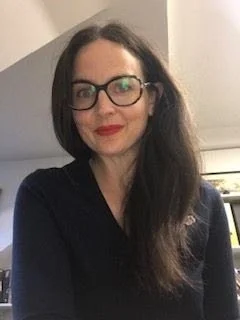



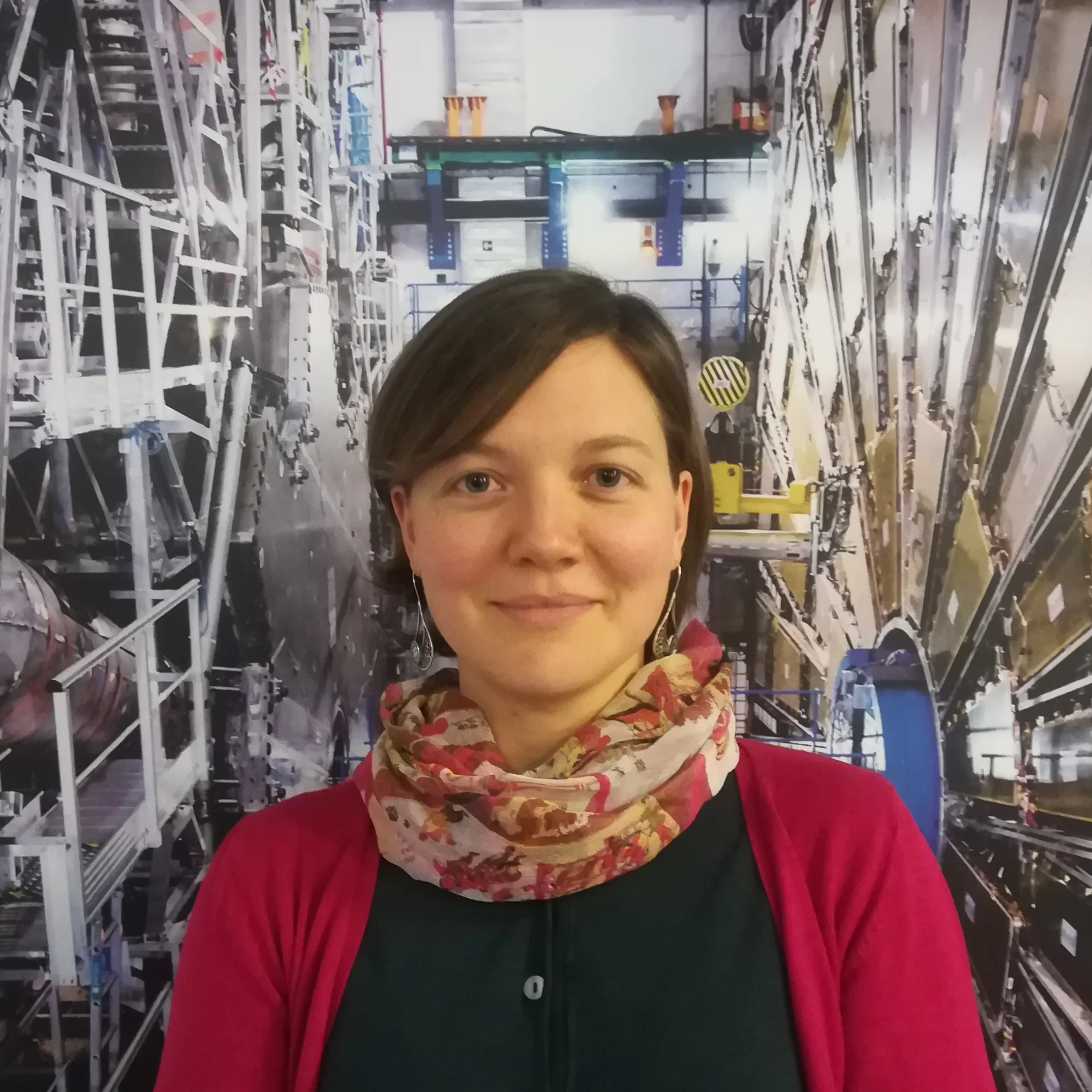




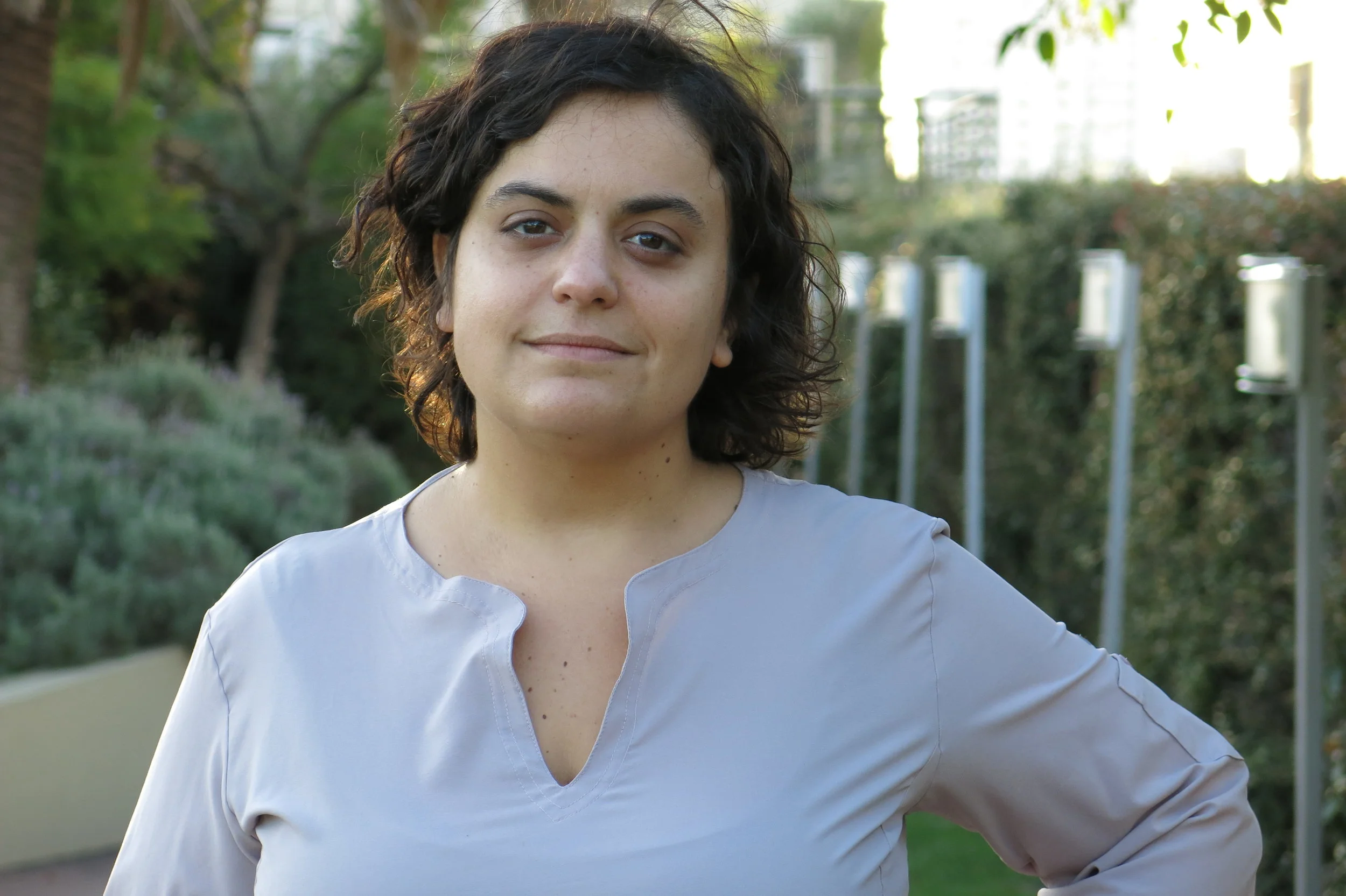















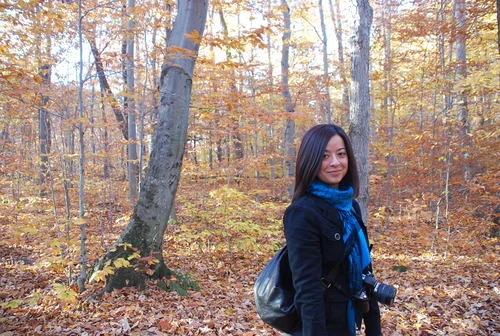
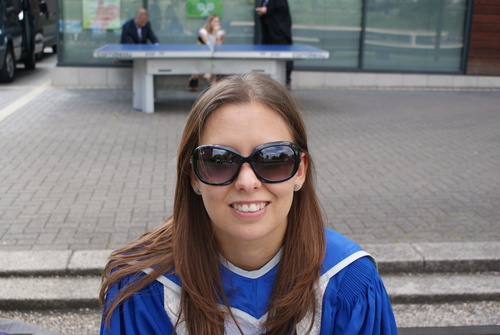
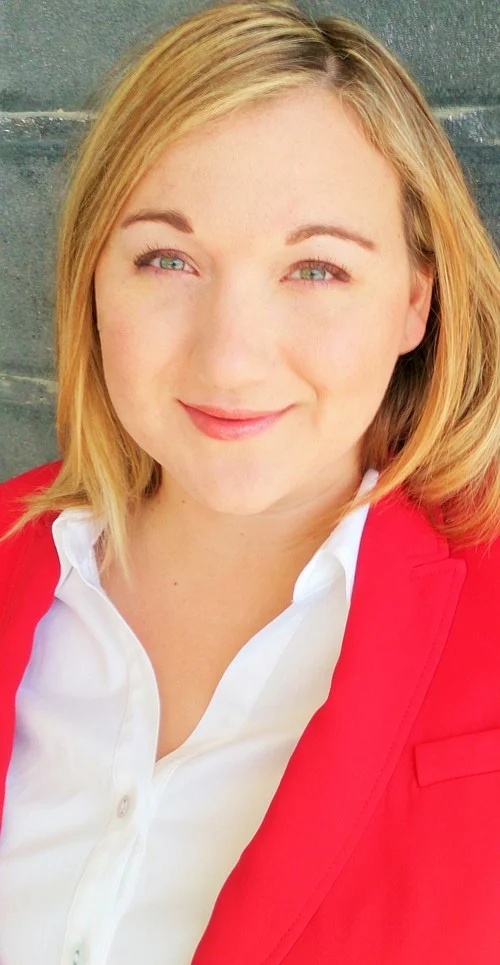


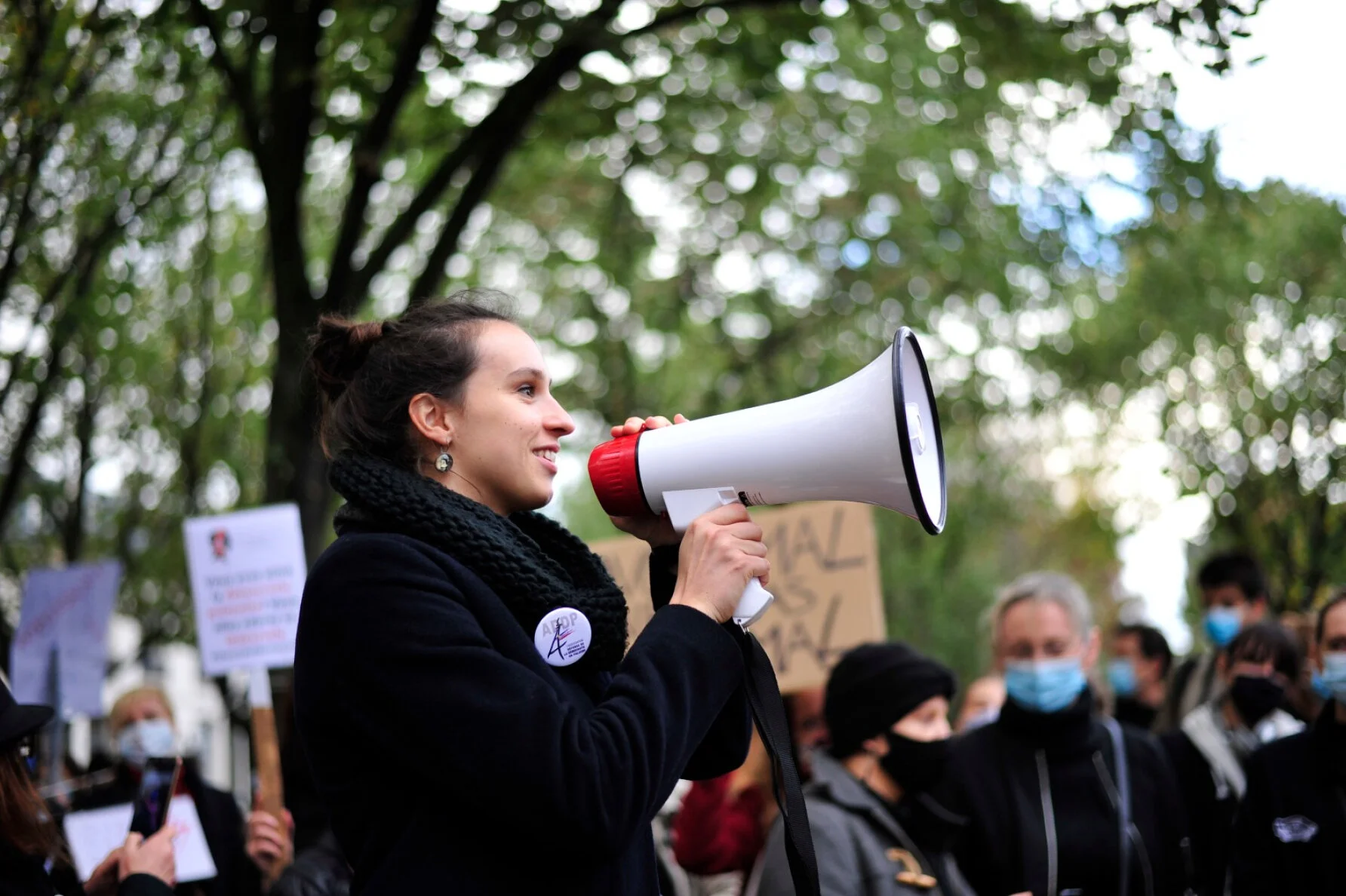





























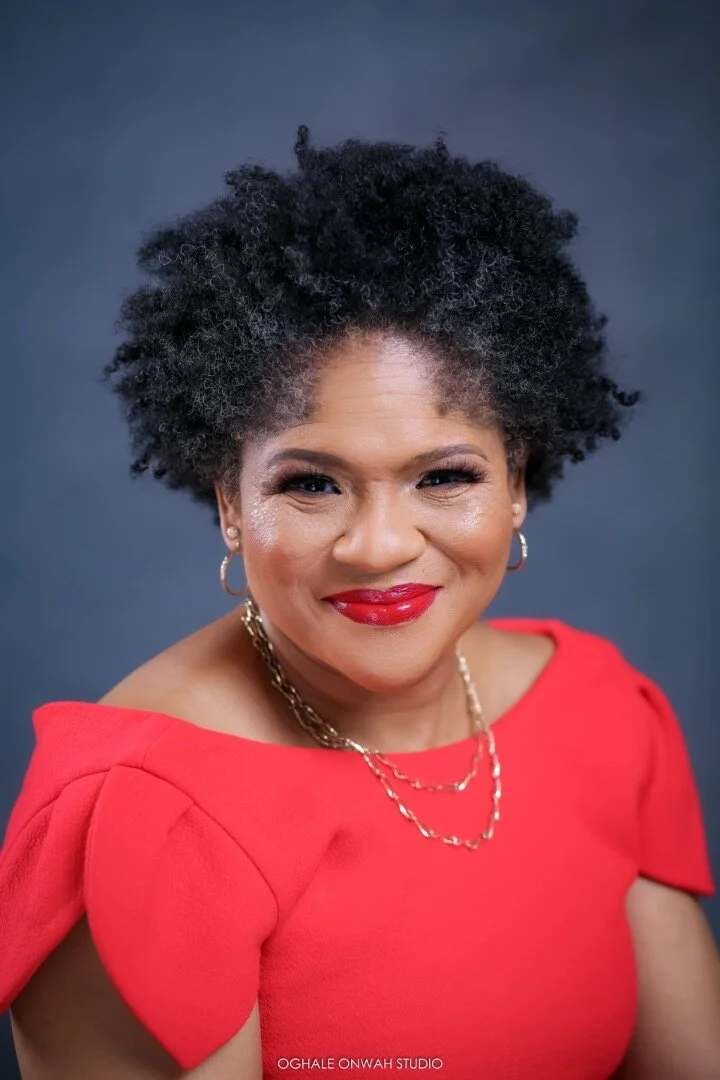





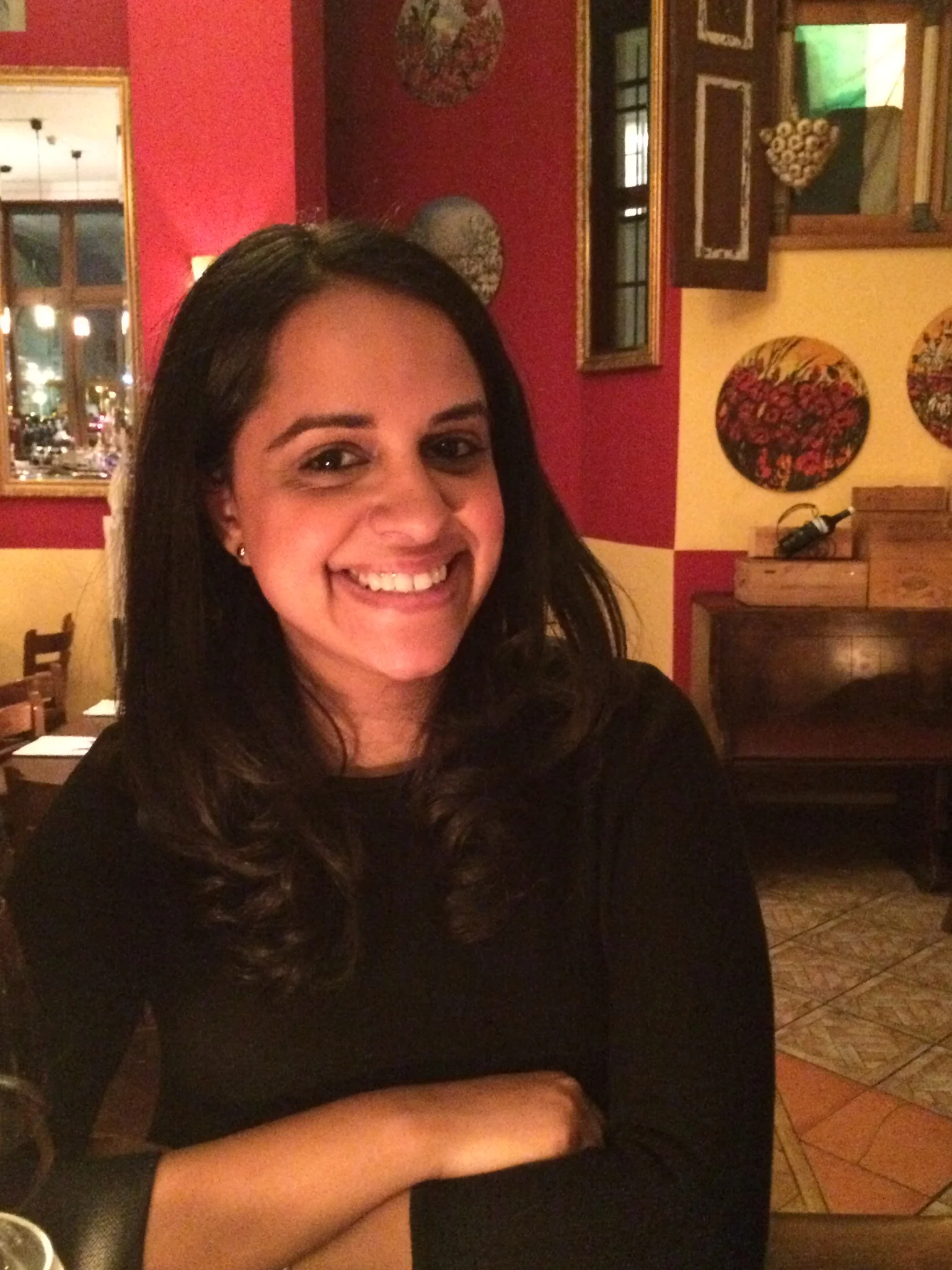






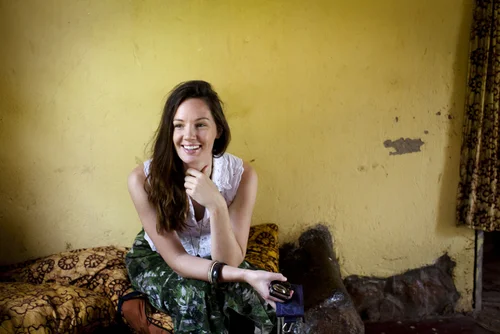










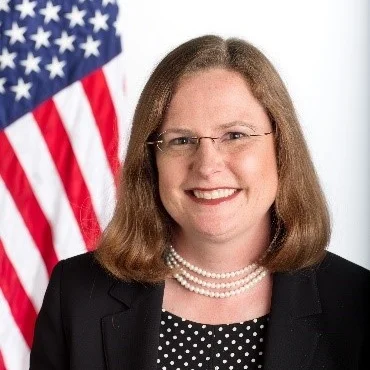




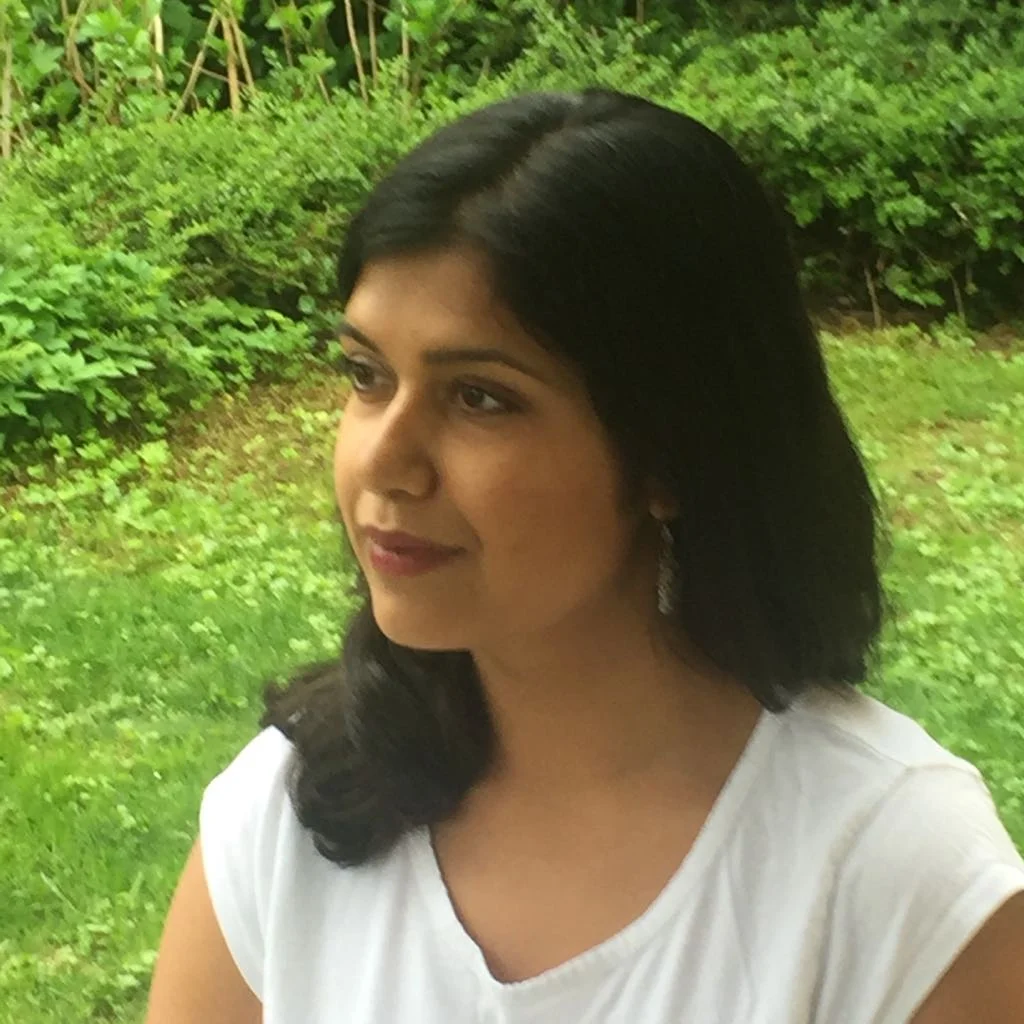




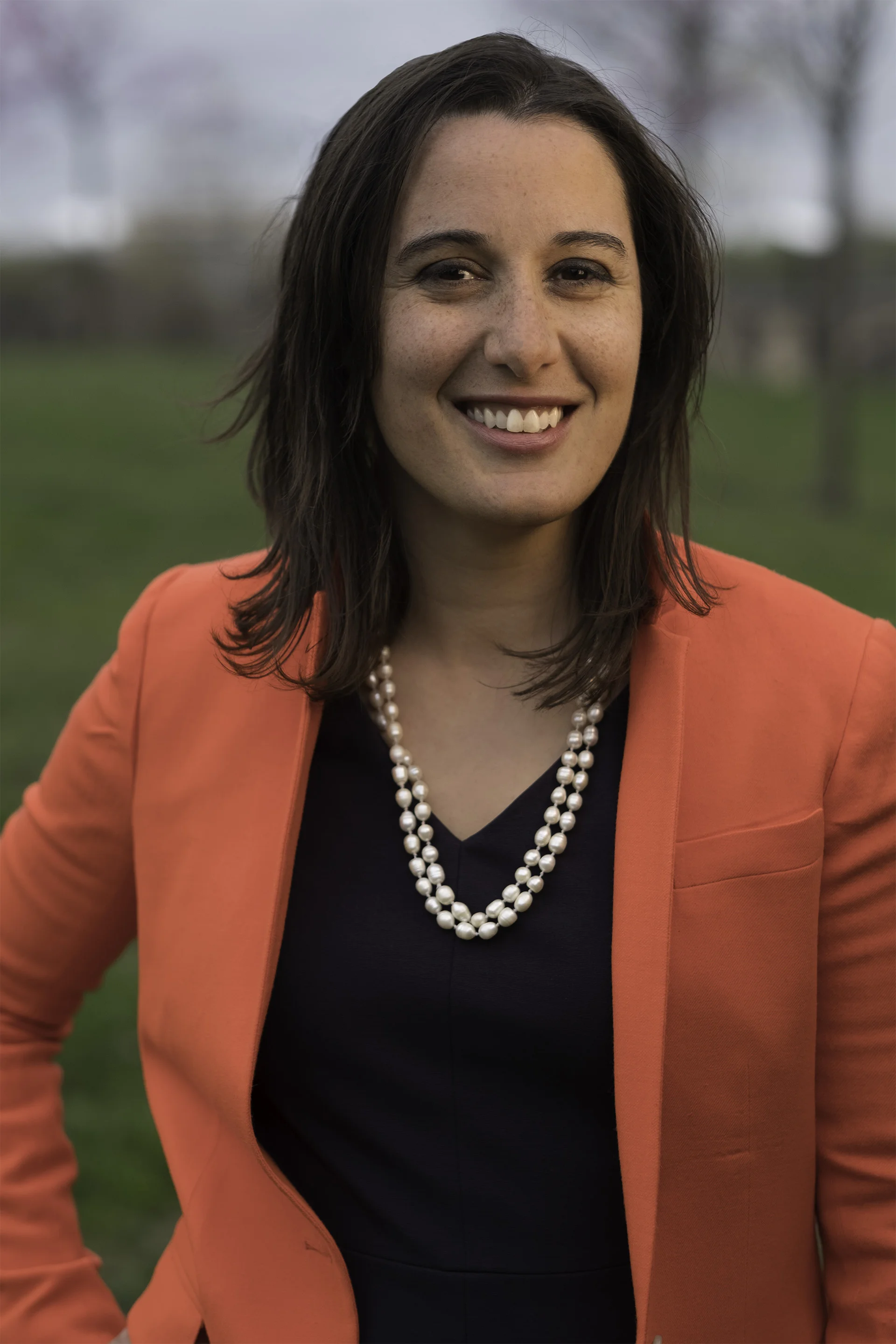















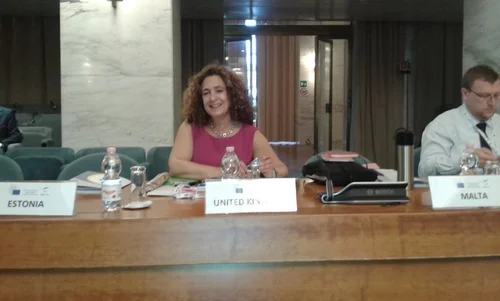
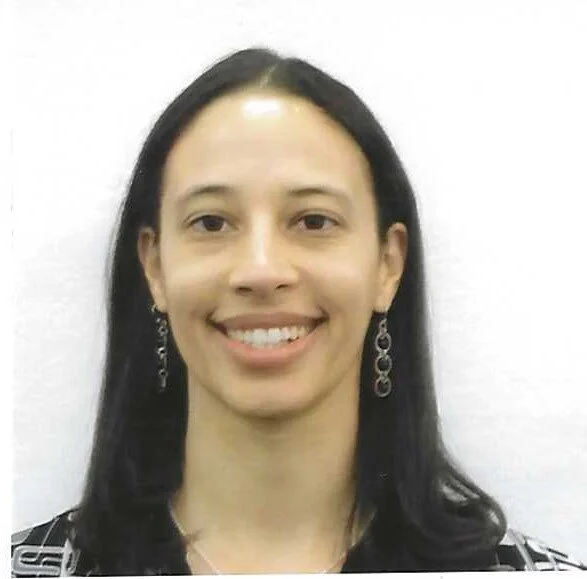

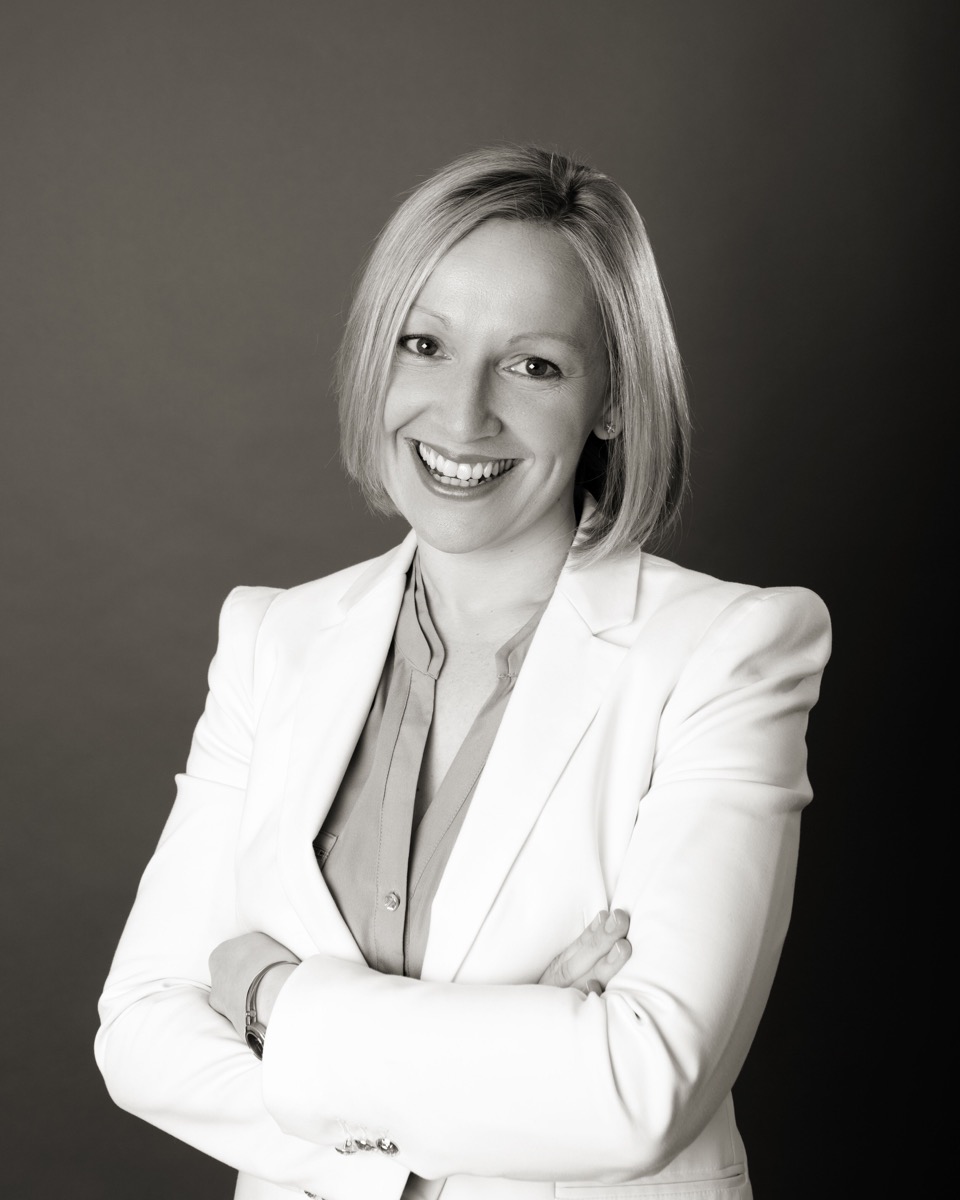























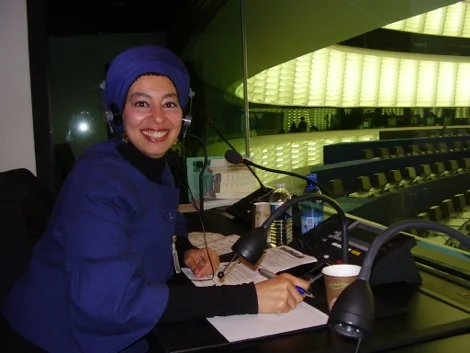


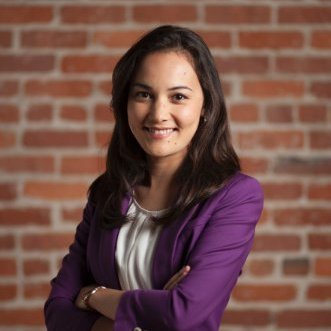



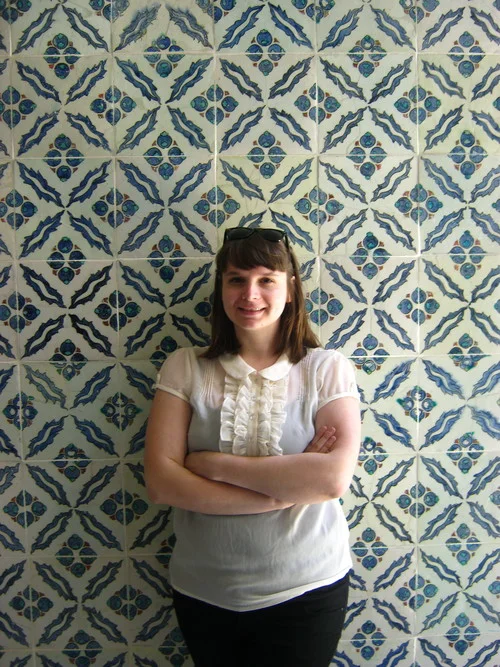


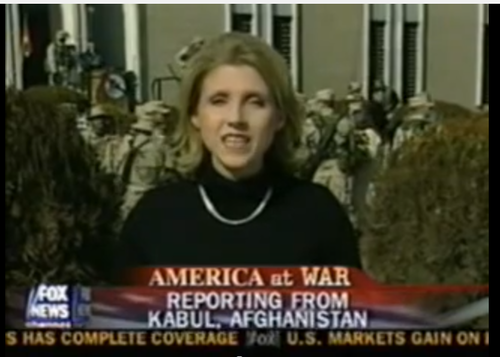









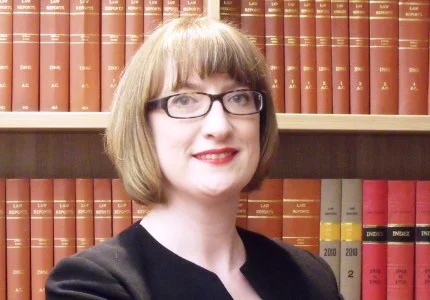






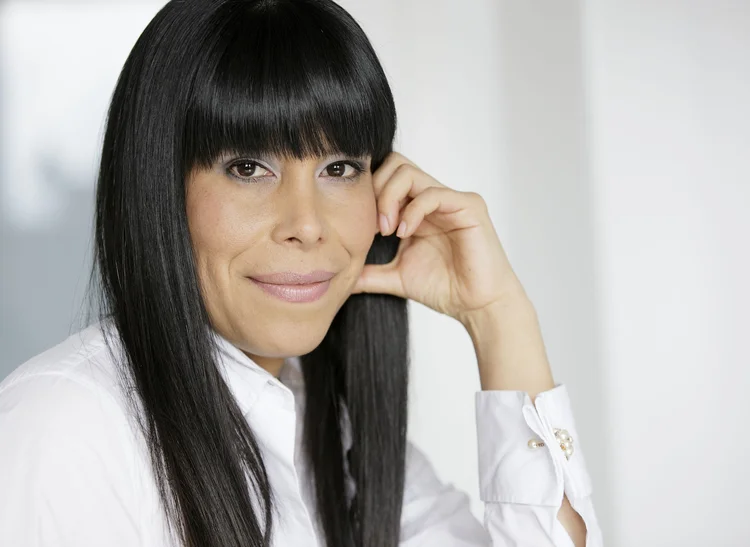

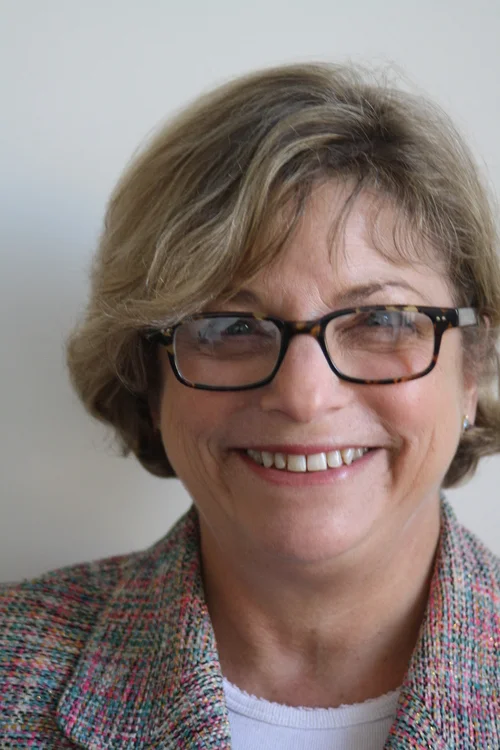





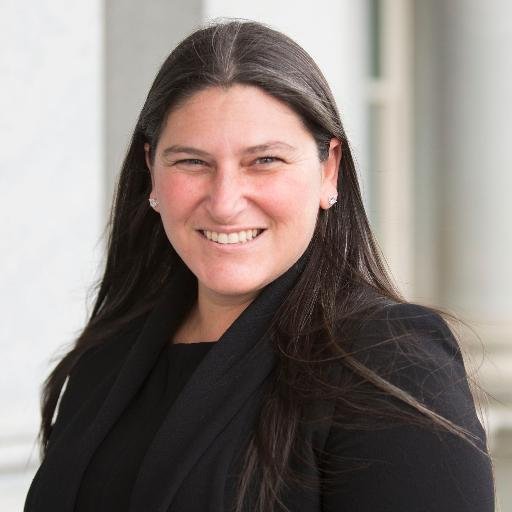





















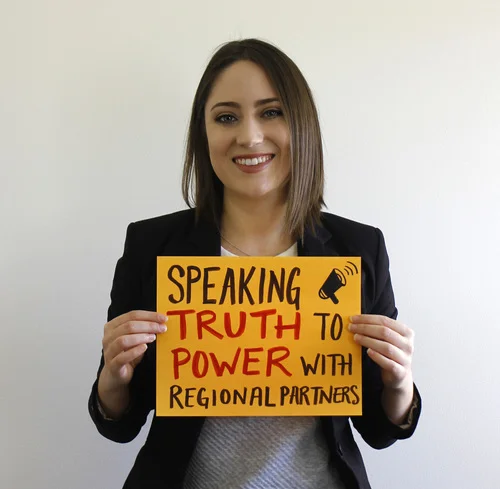
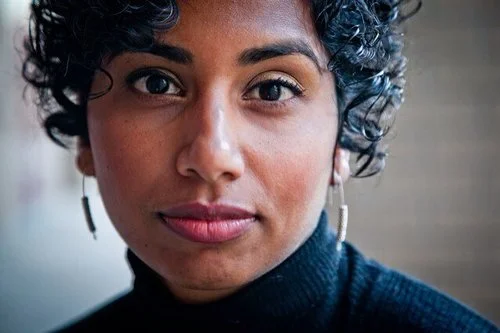


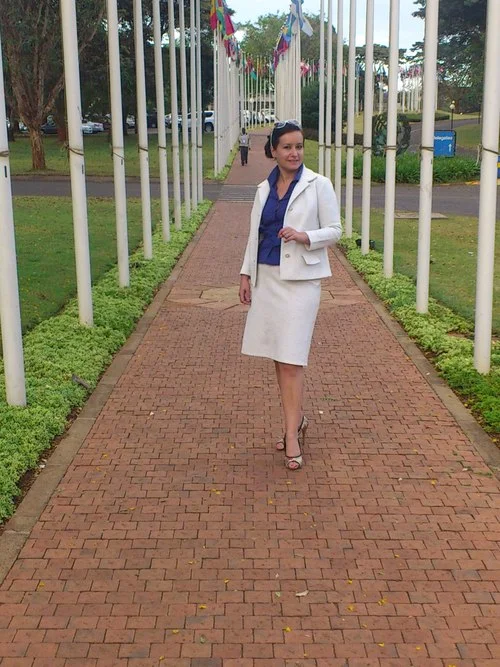




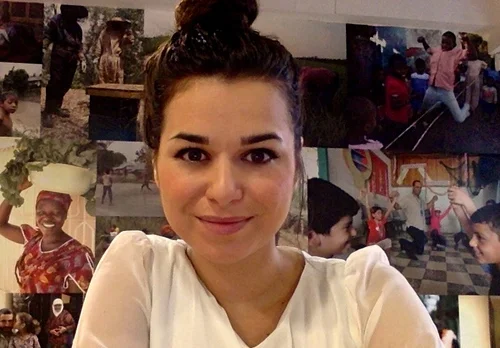
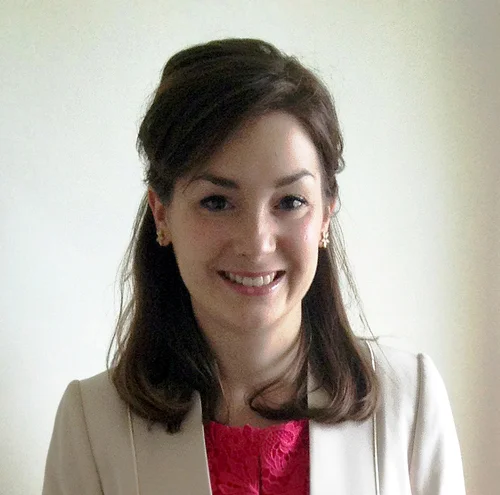





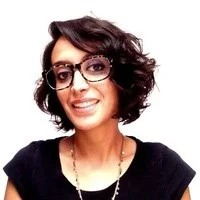







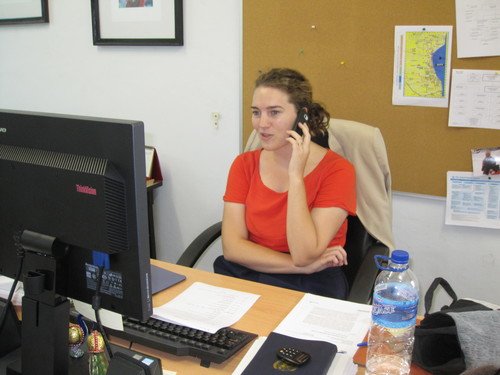
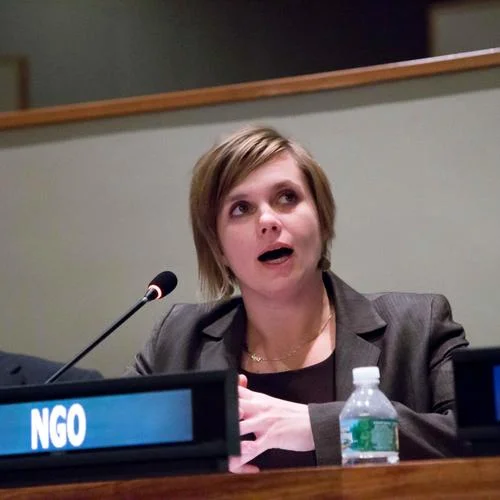

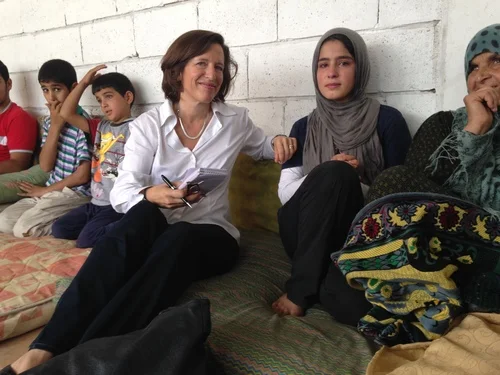

Find out how Polina Levina Mahnad got jobs at the ICC and the UN reporting on Human Rights in Syria and then Ukraine after graduating from the LSE.